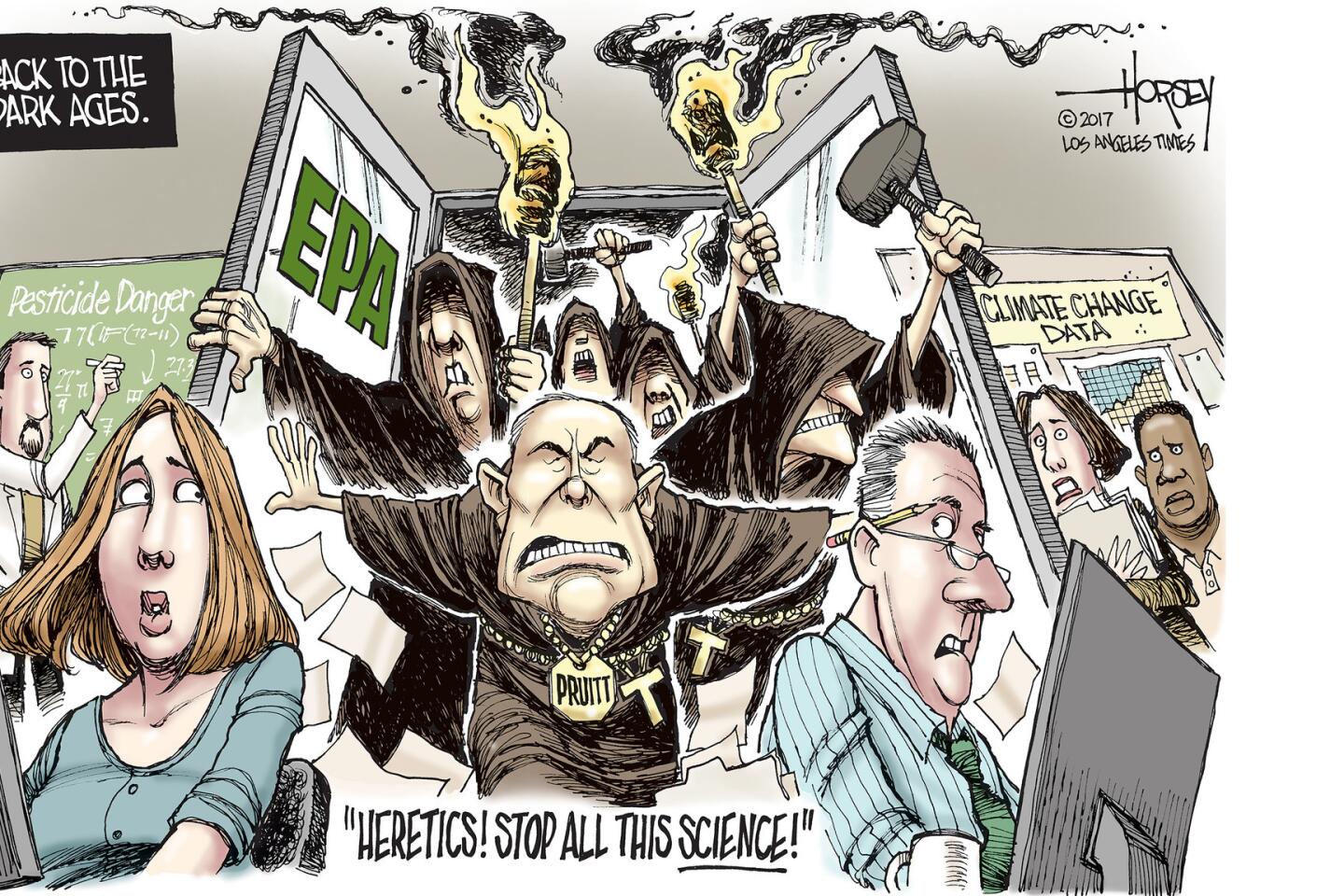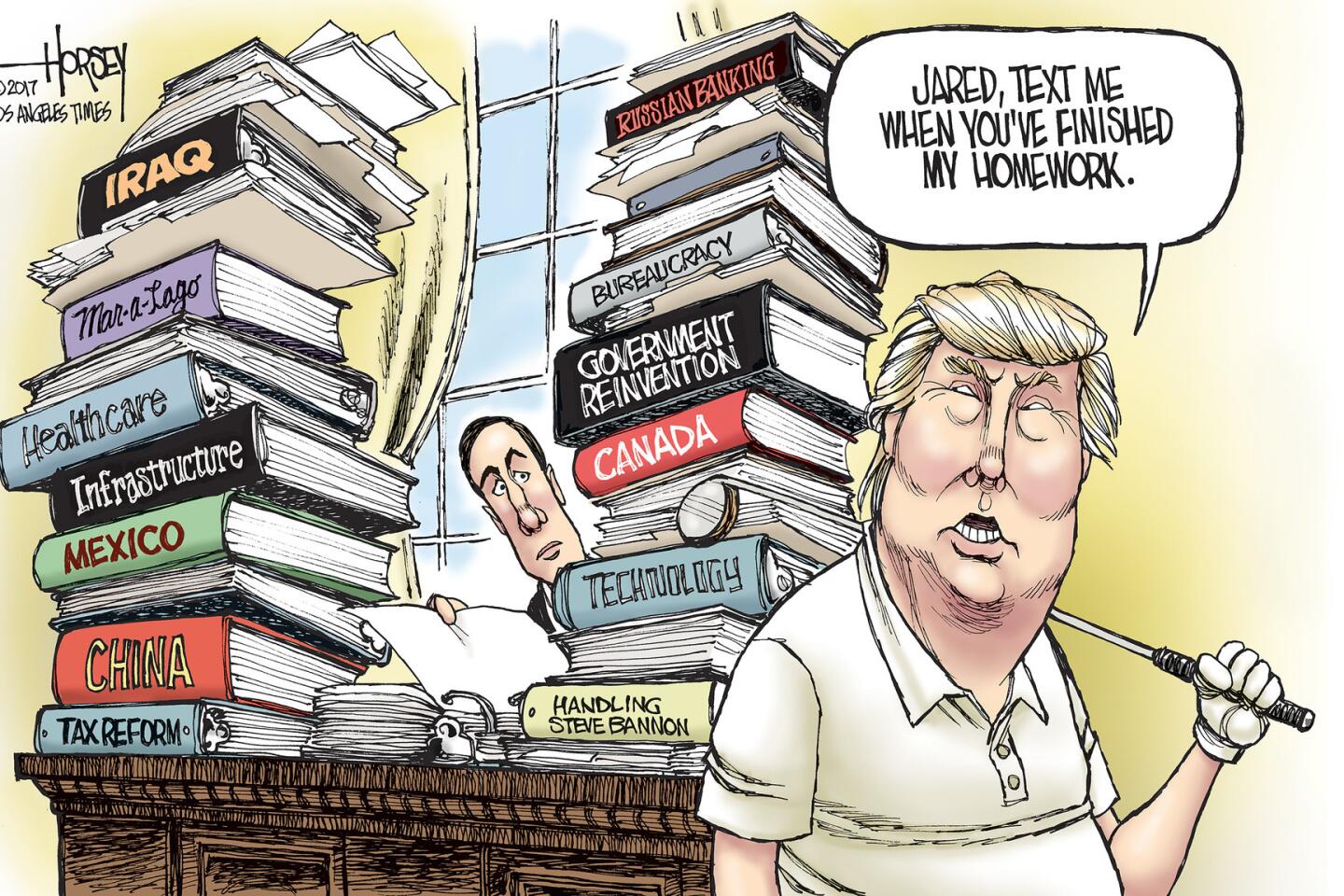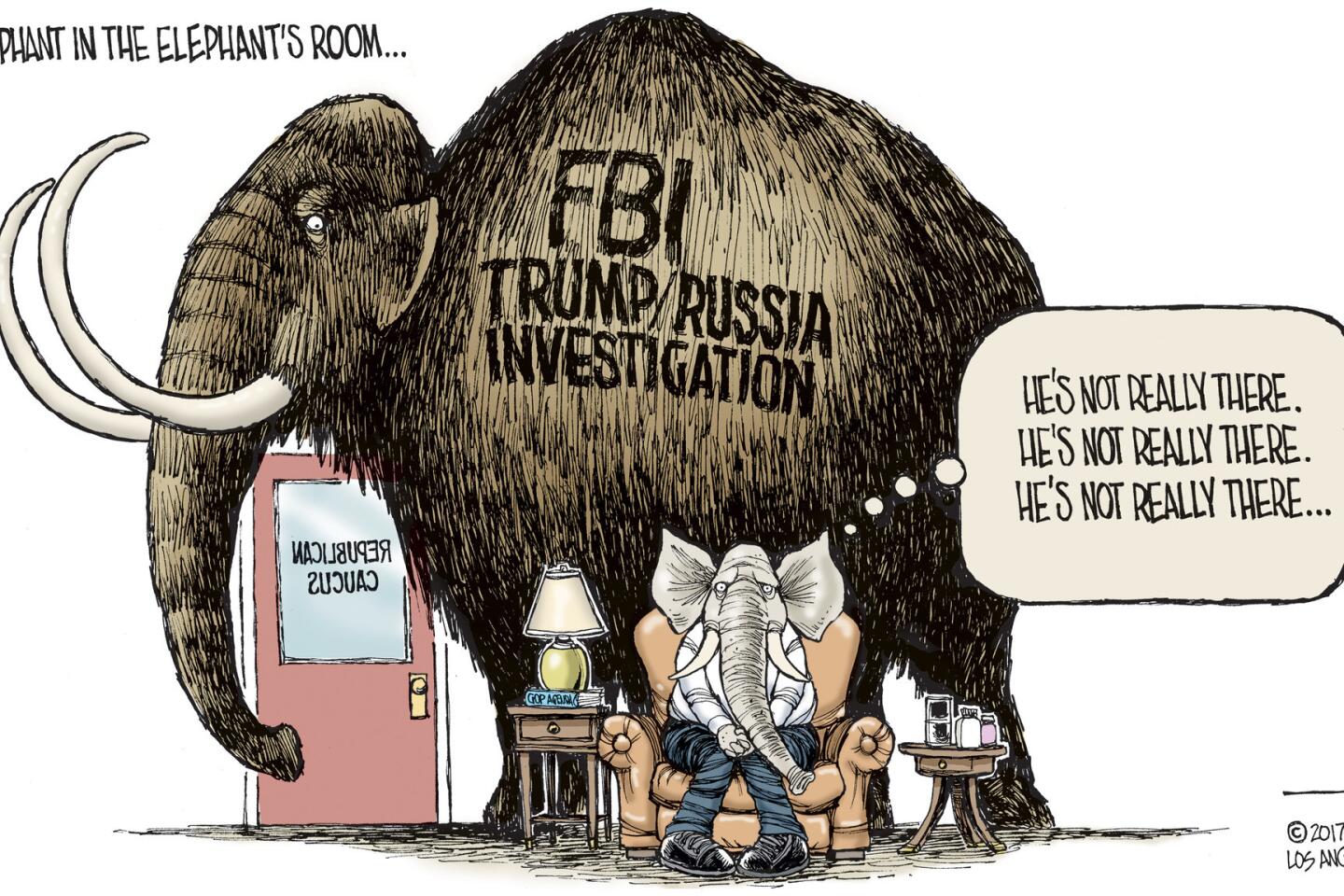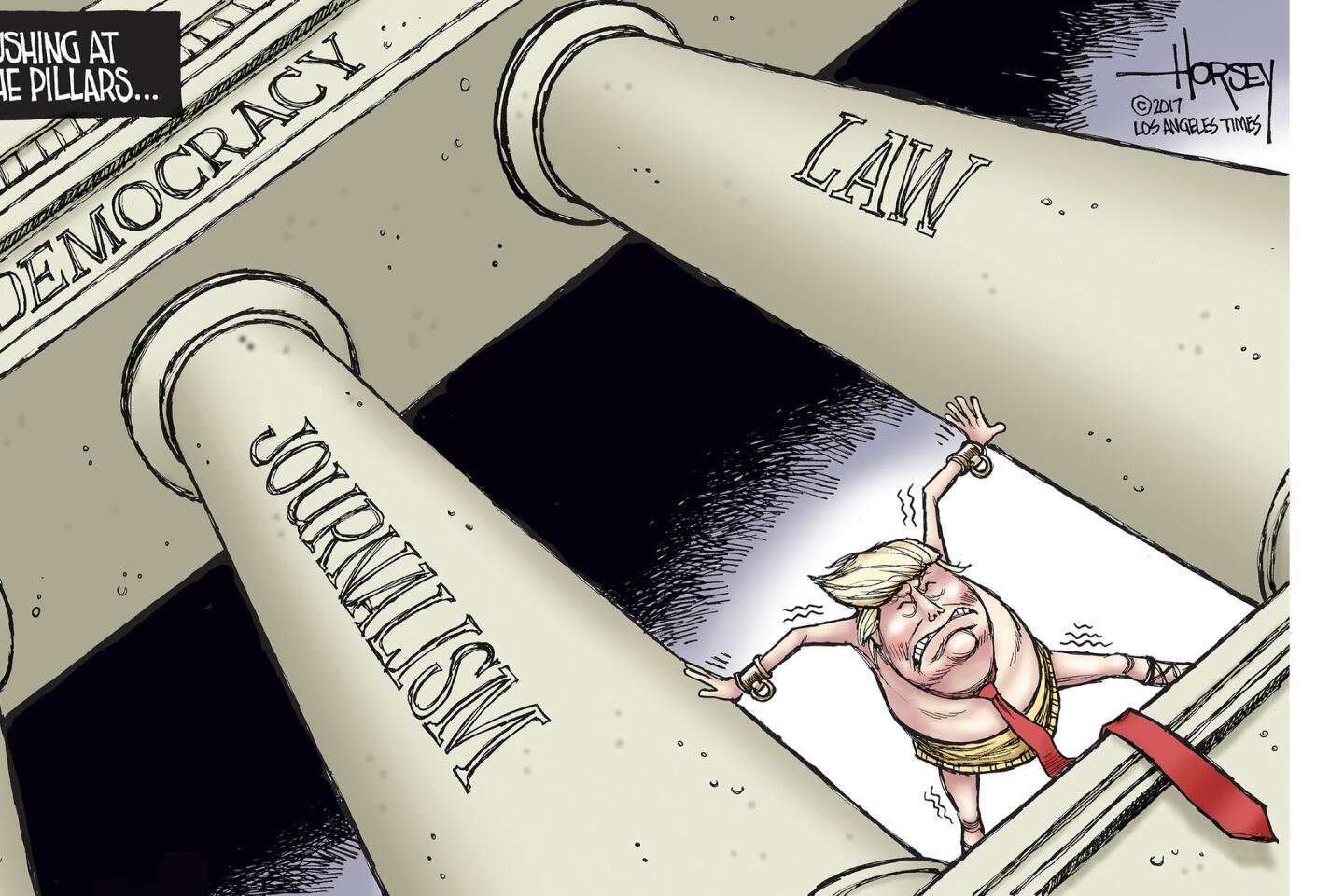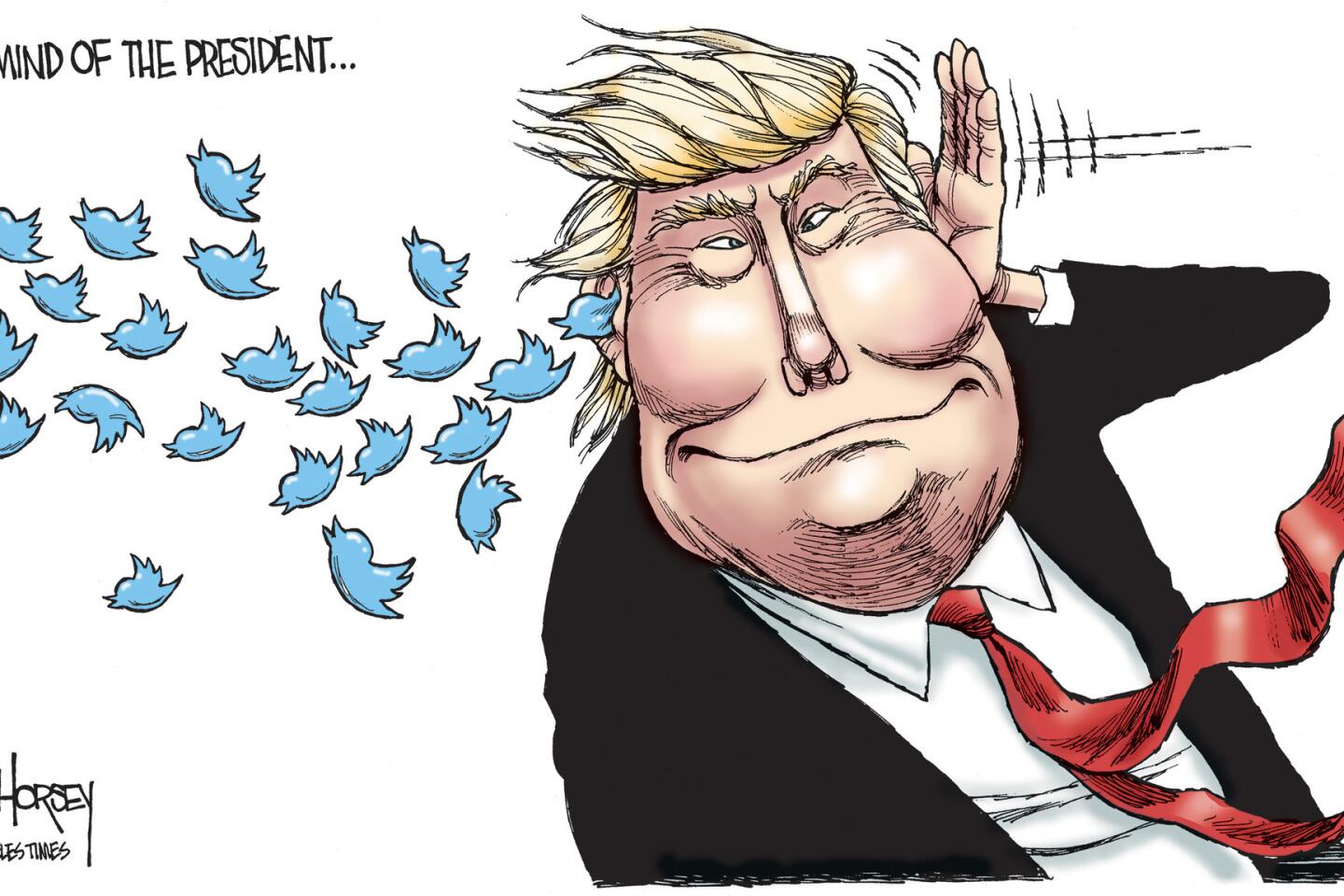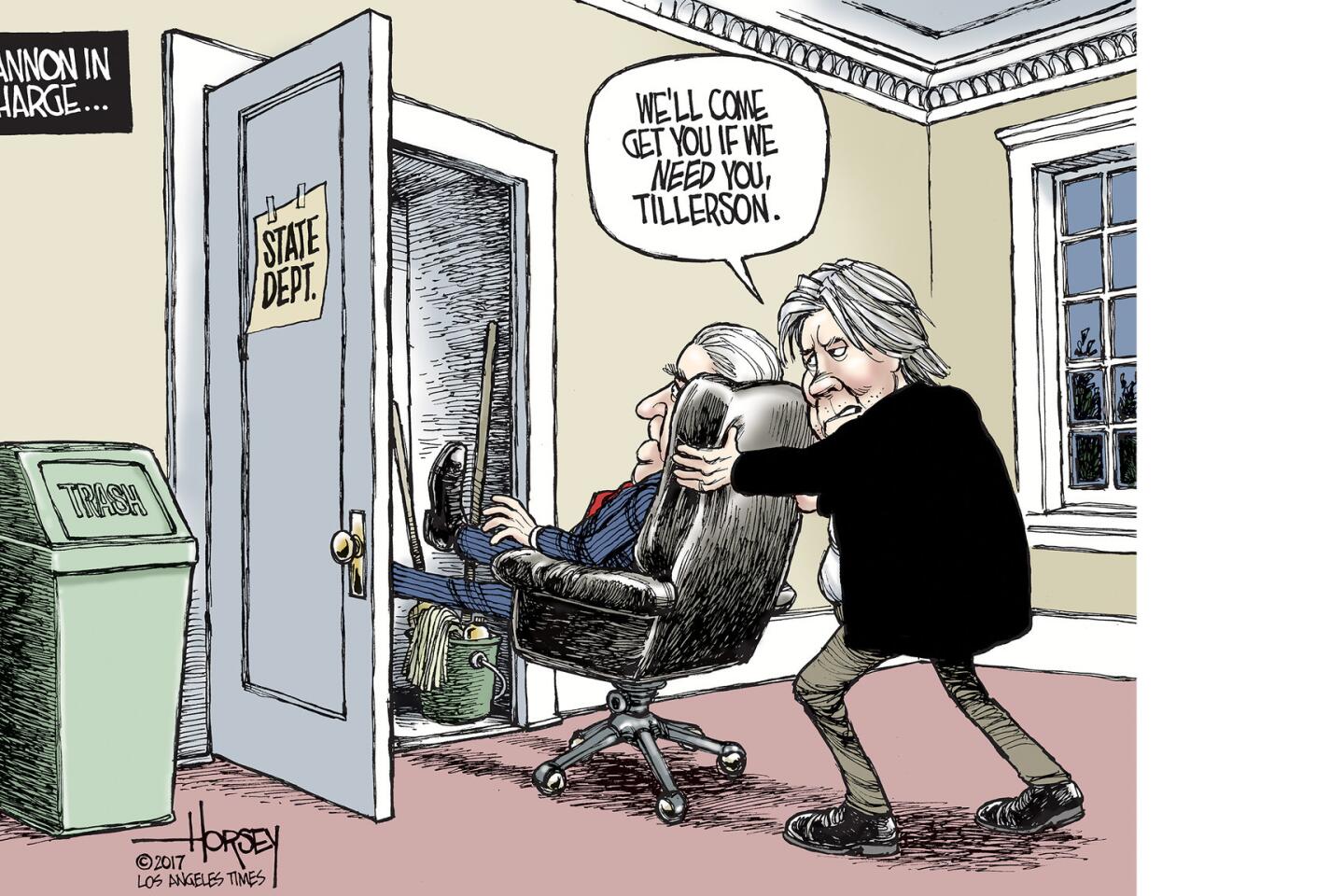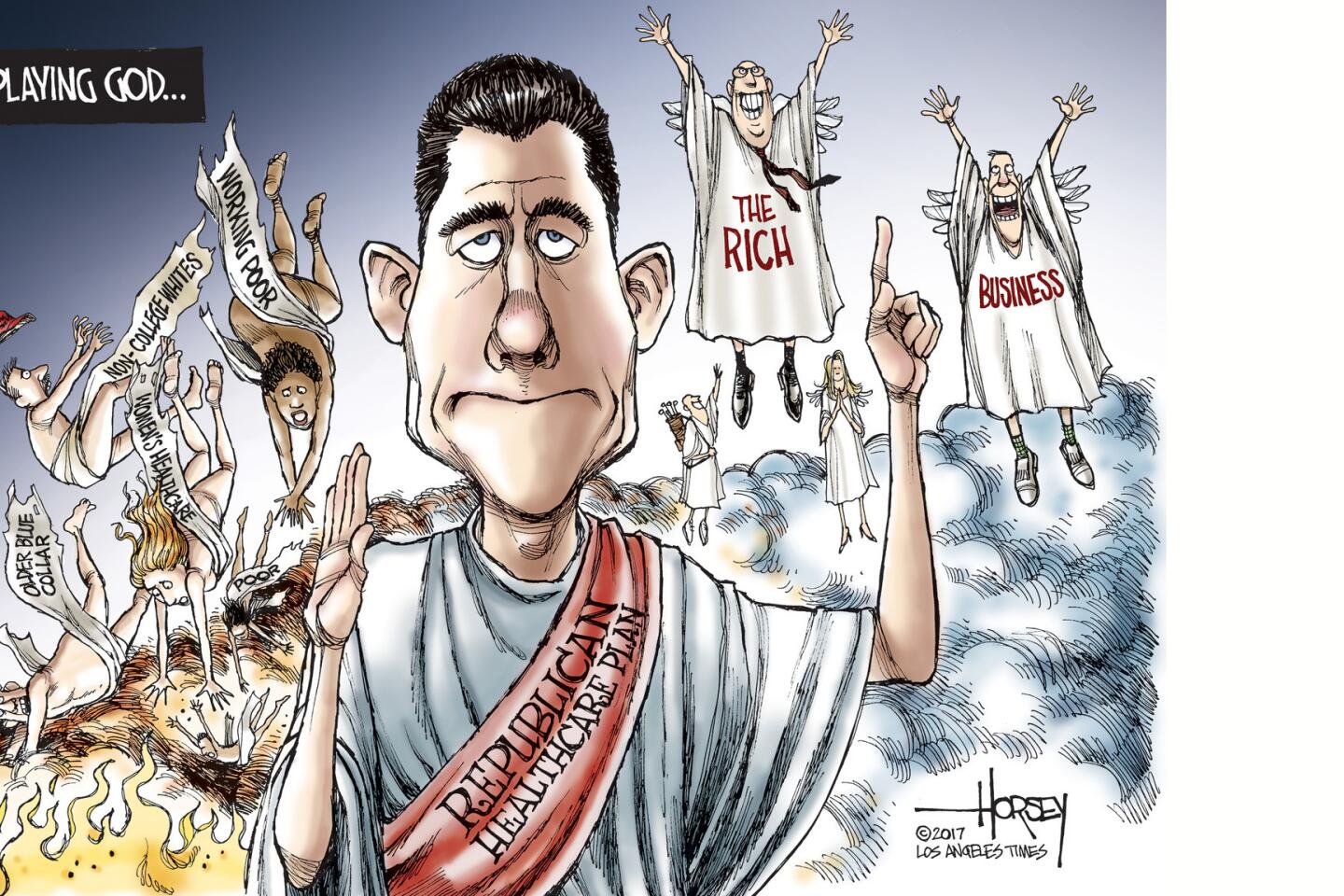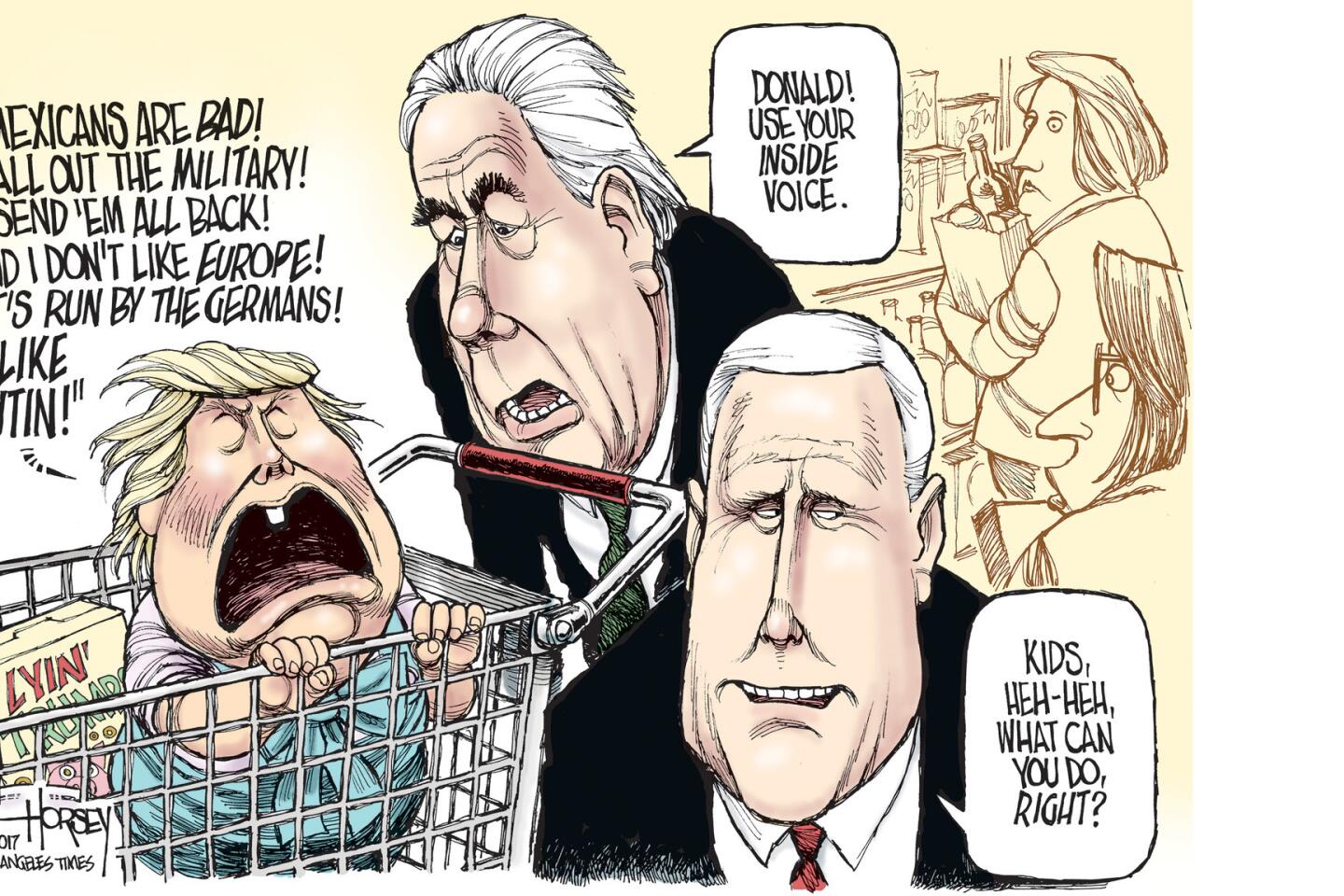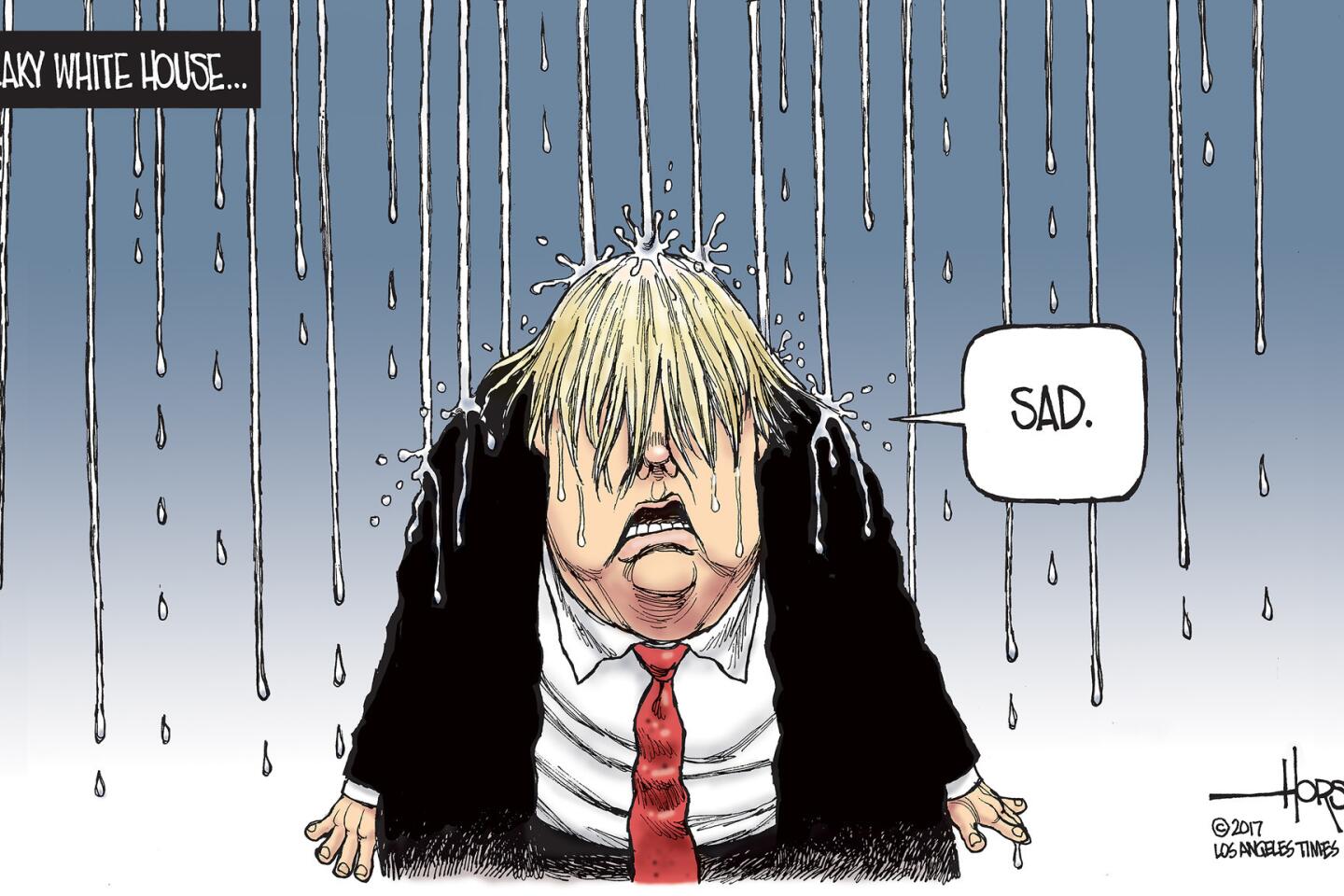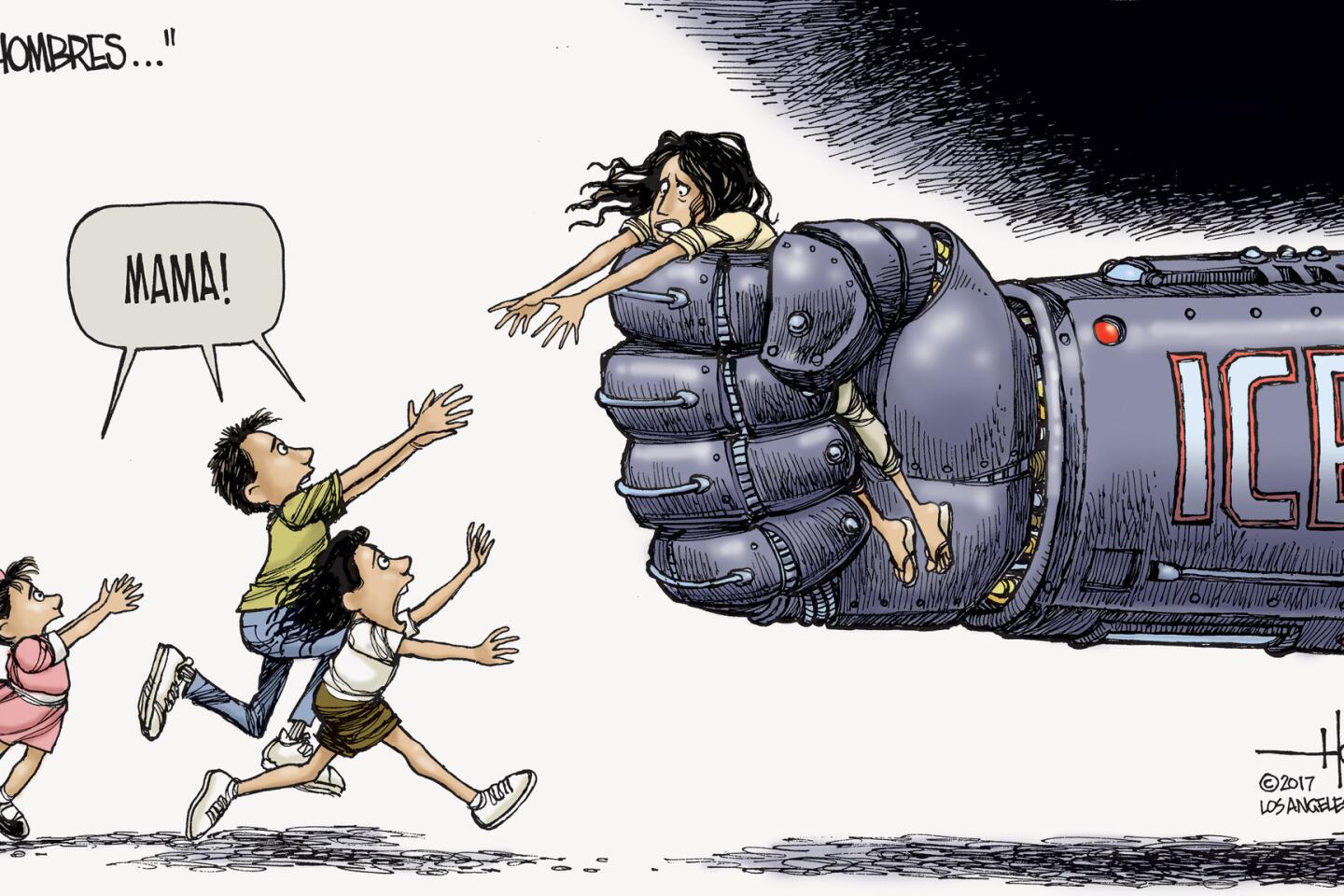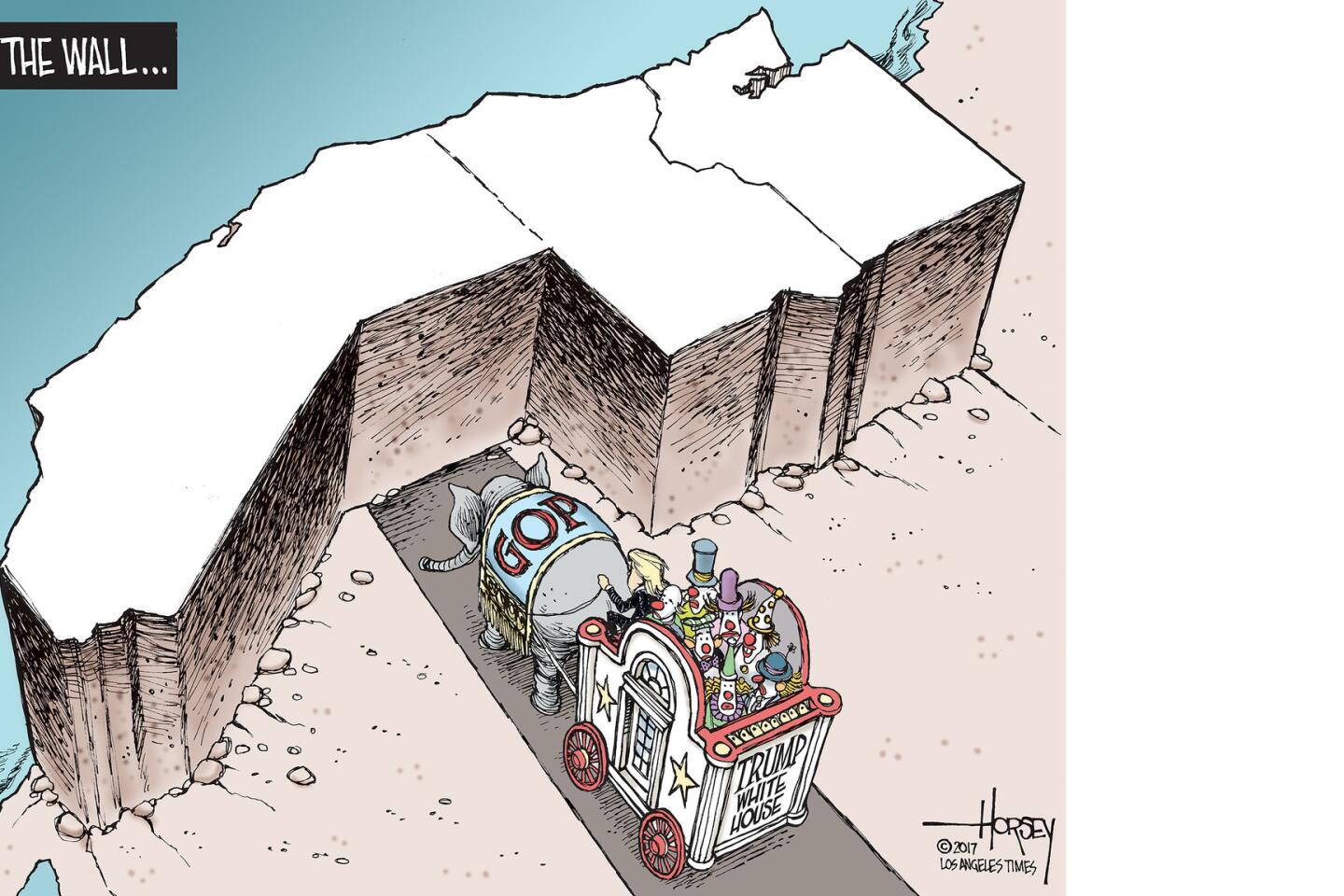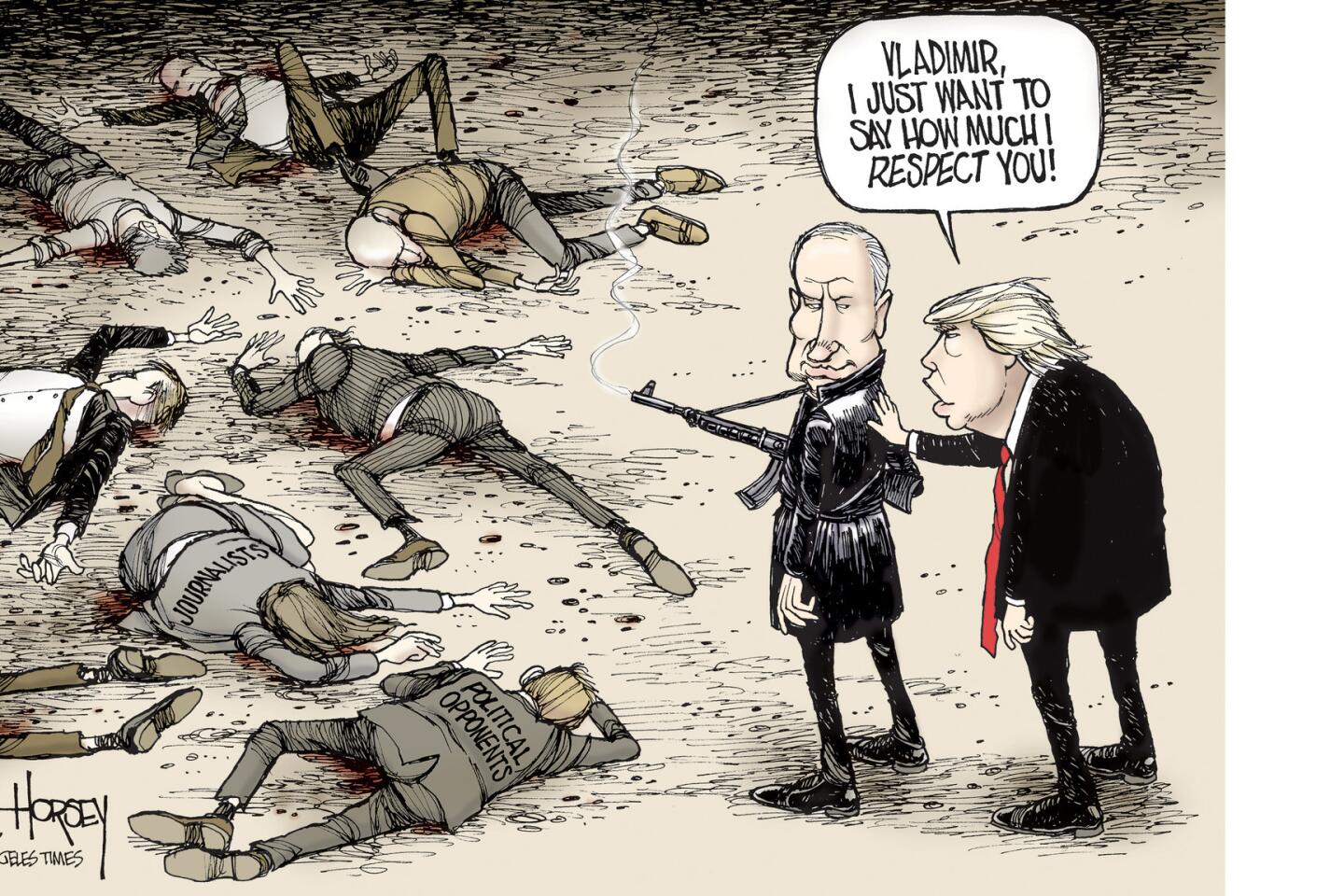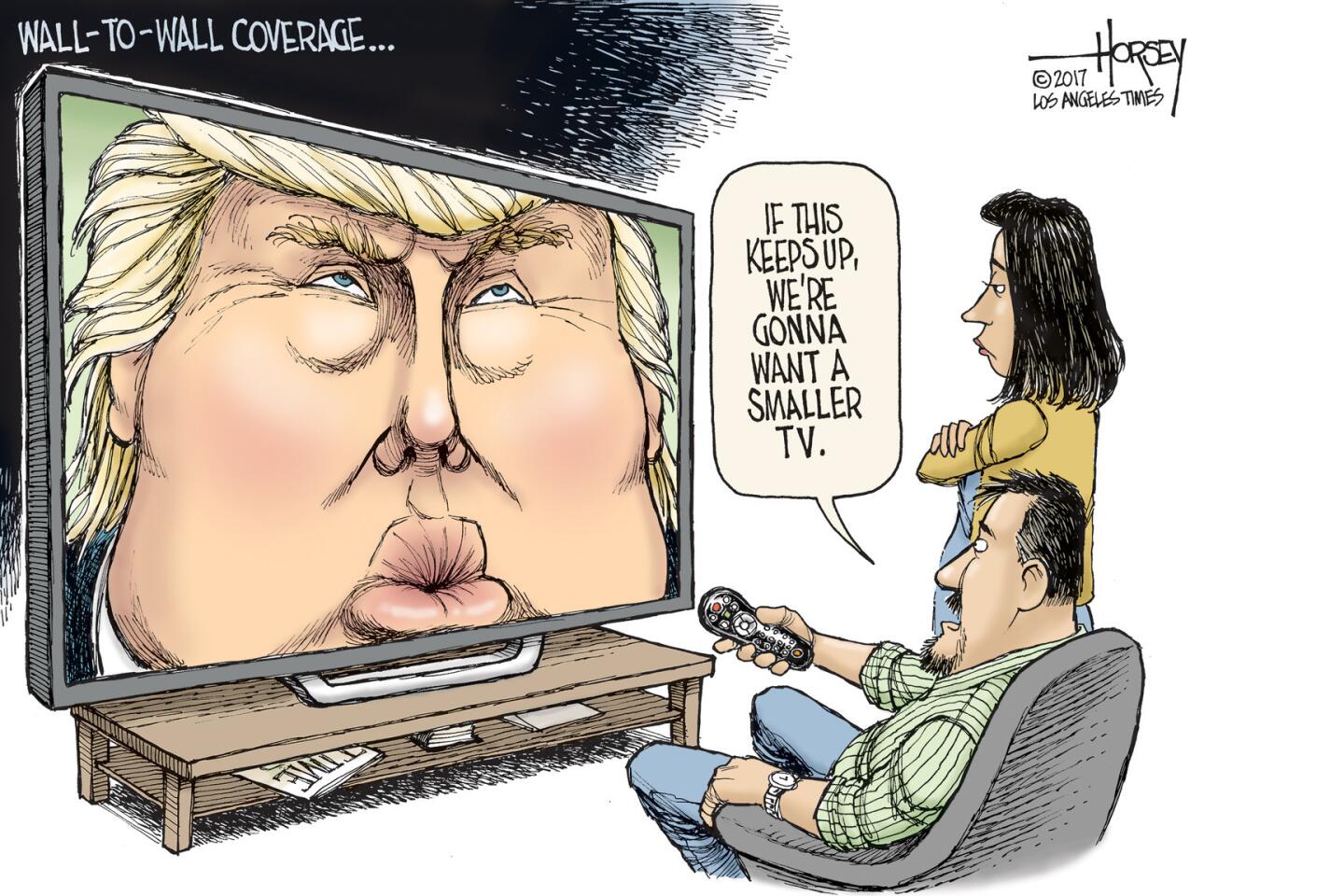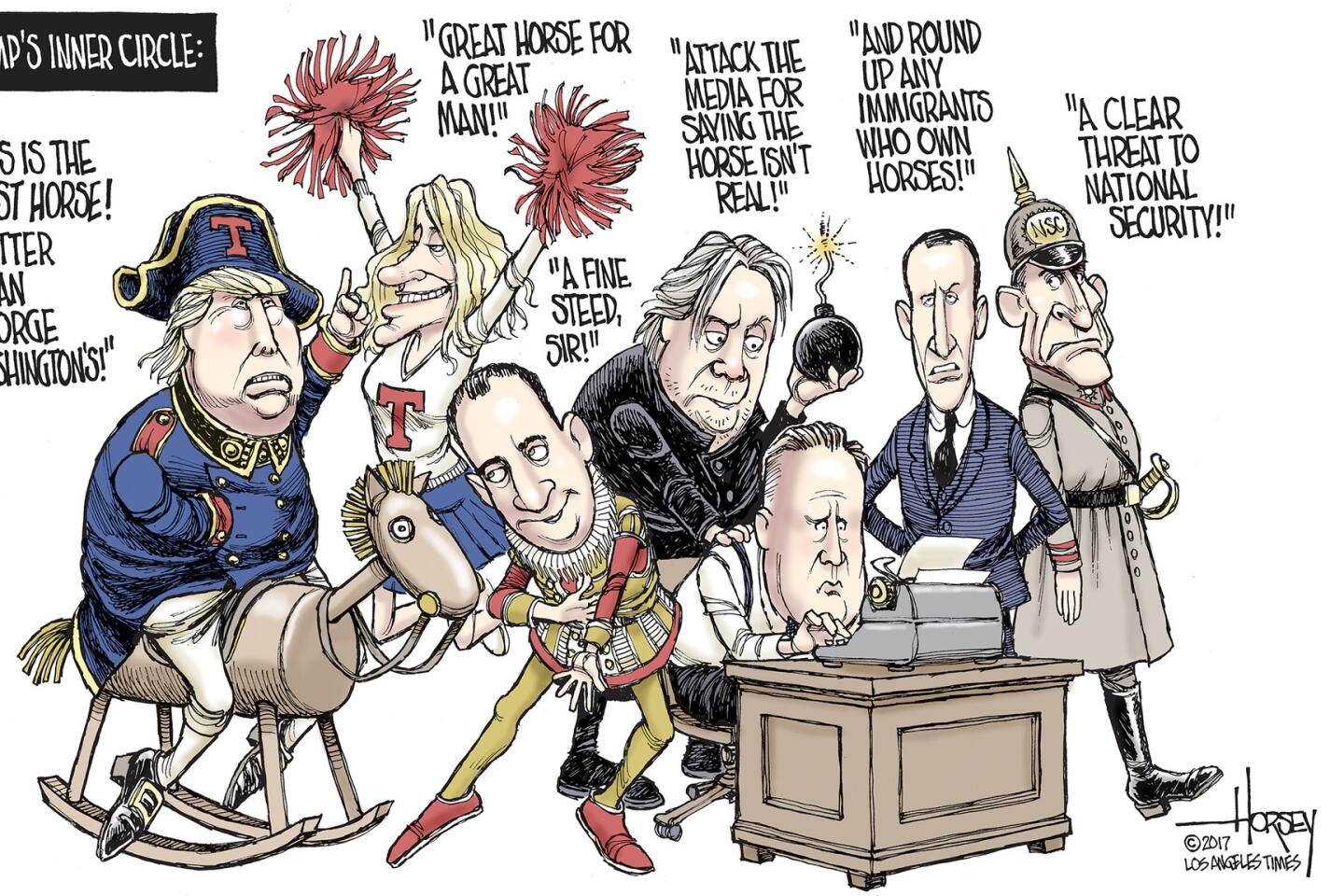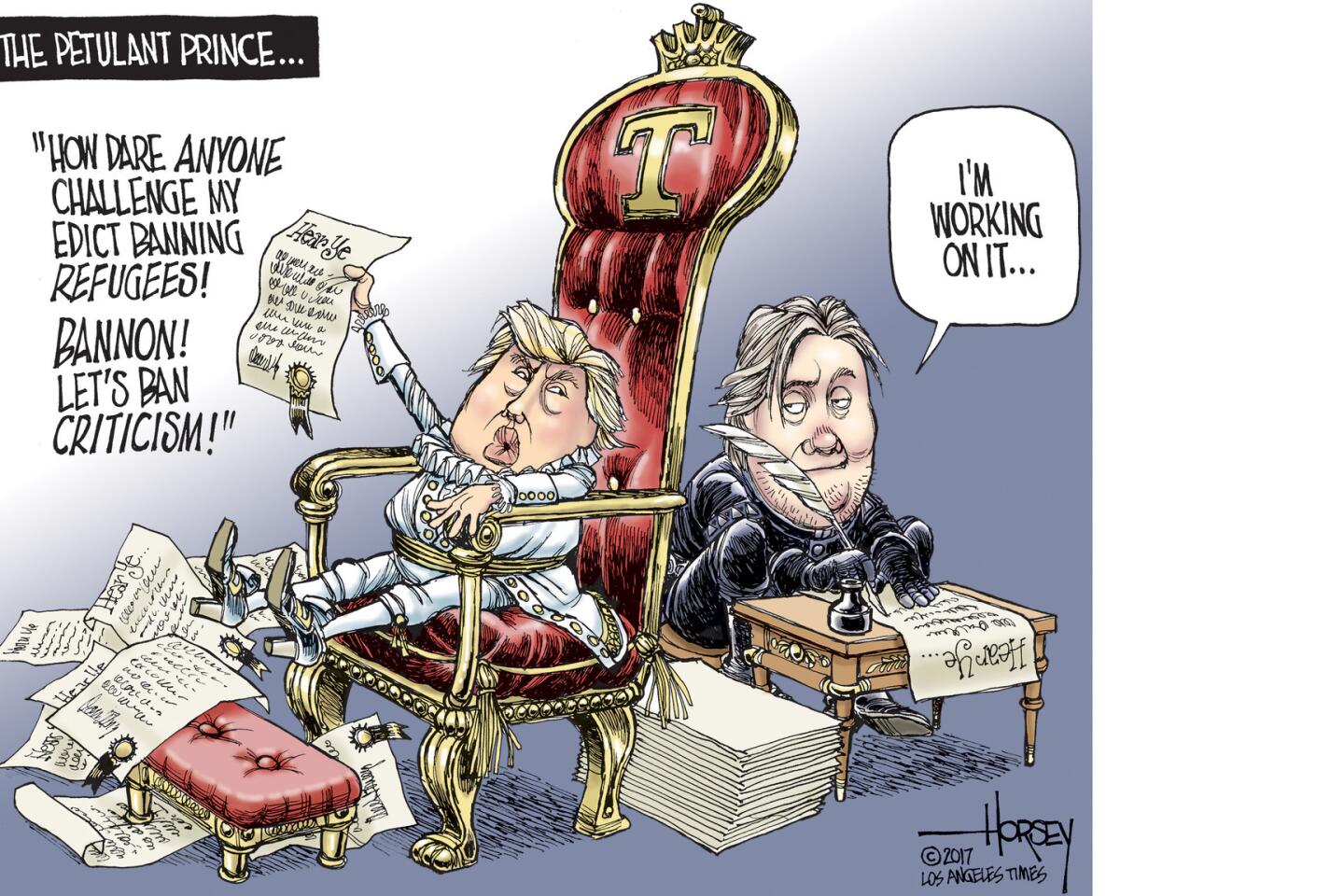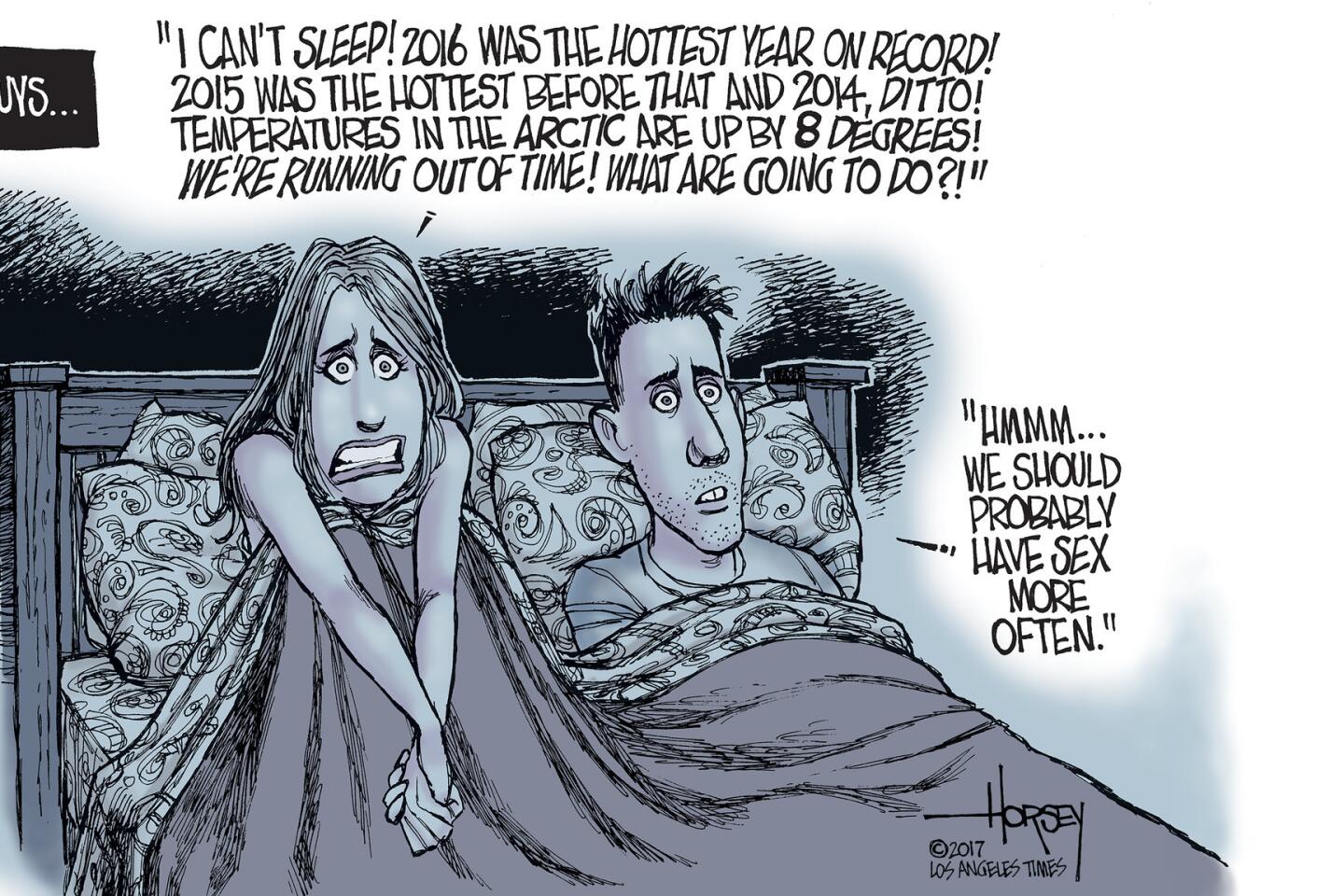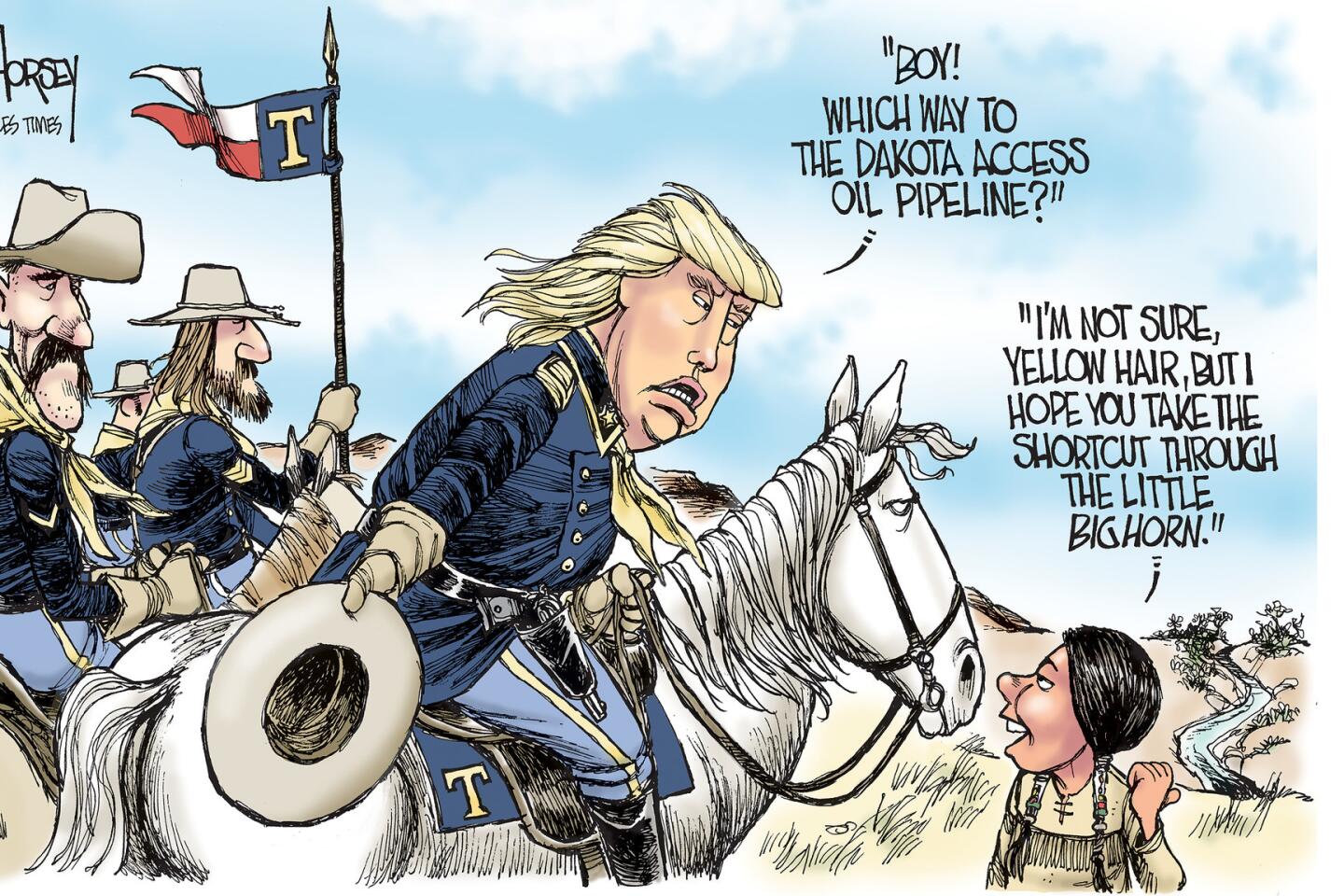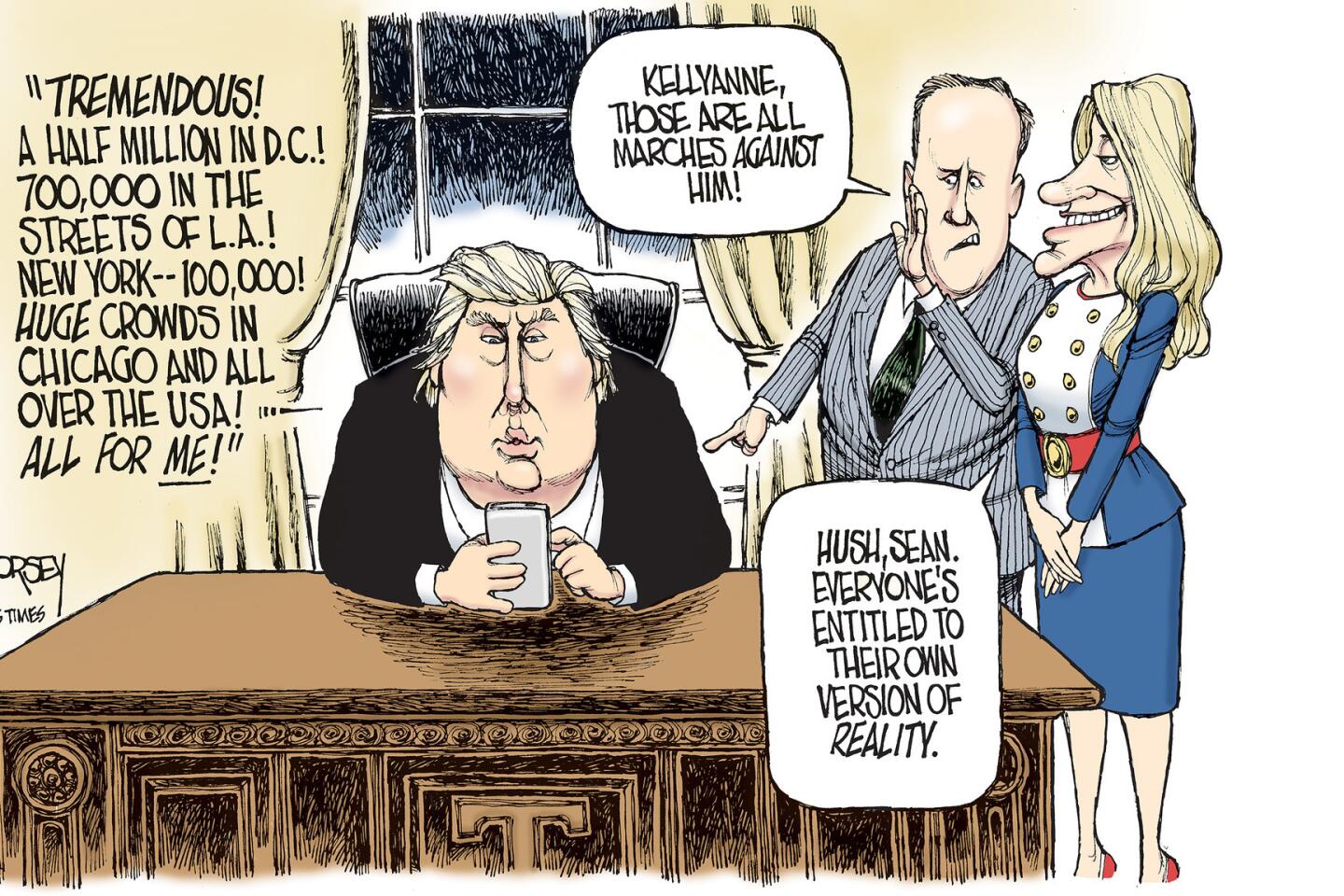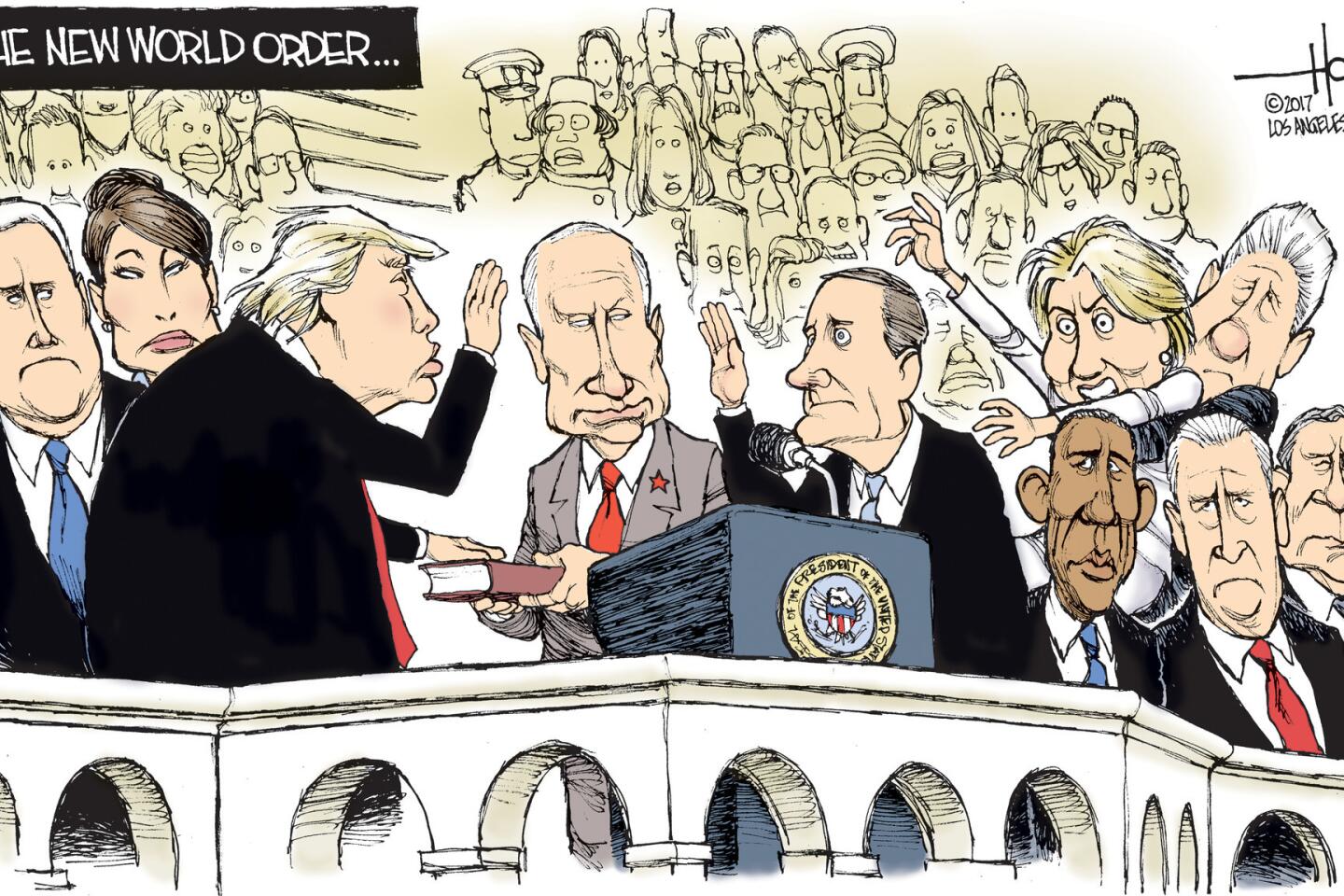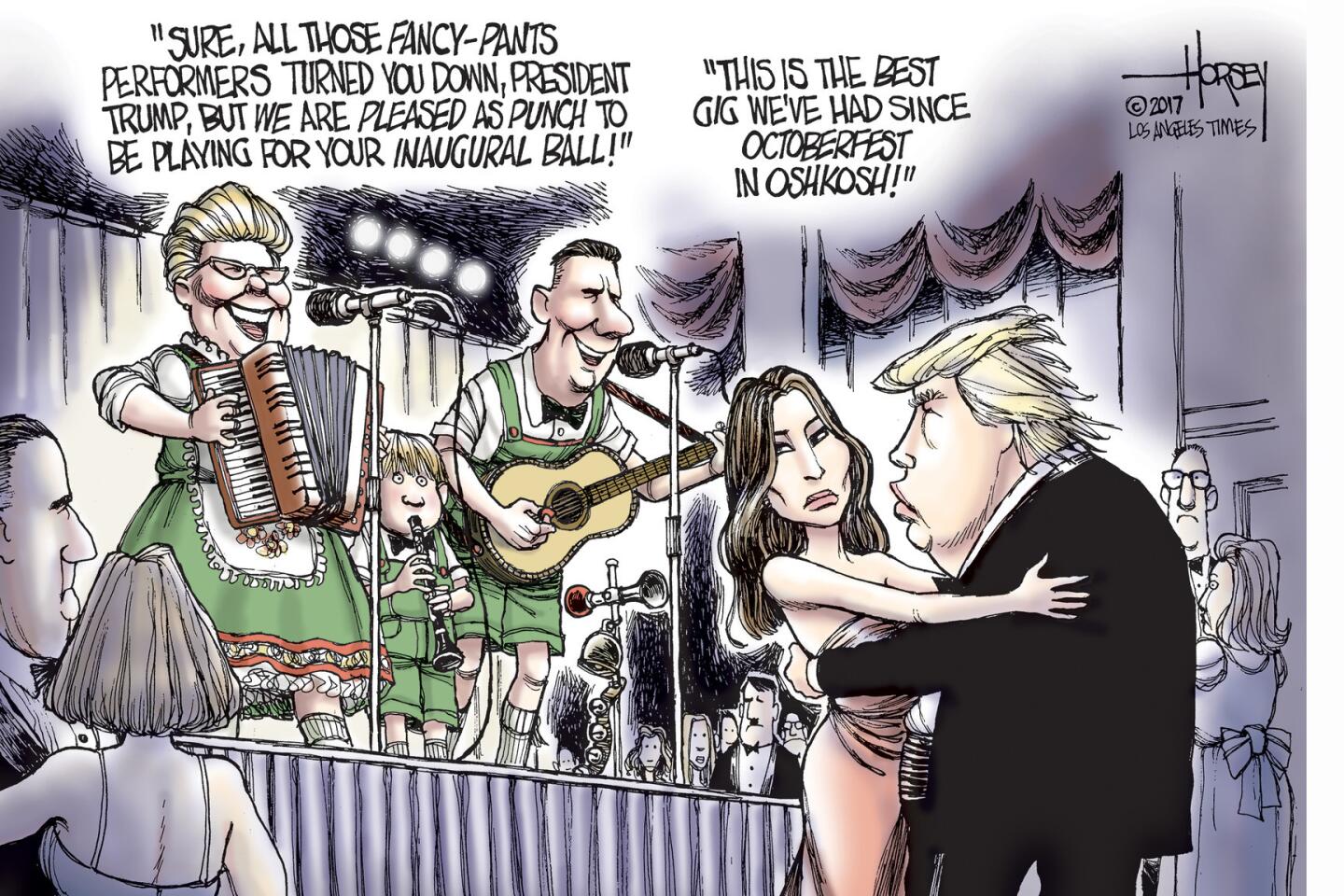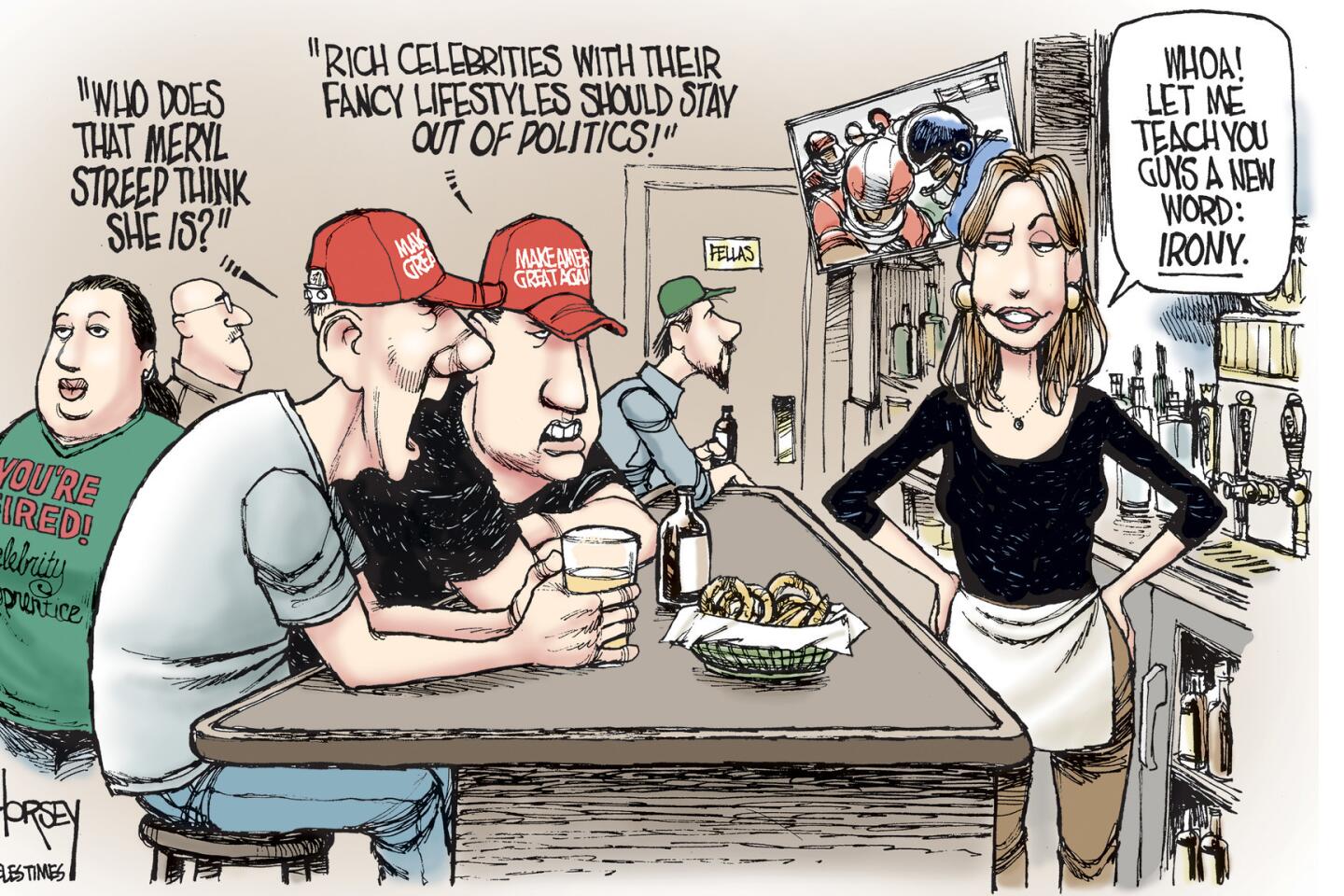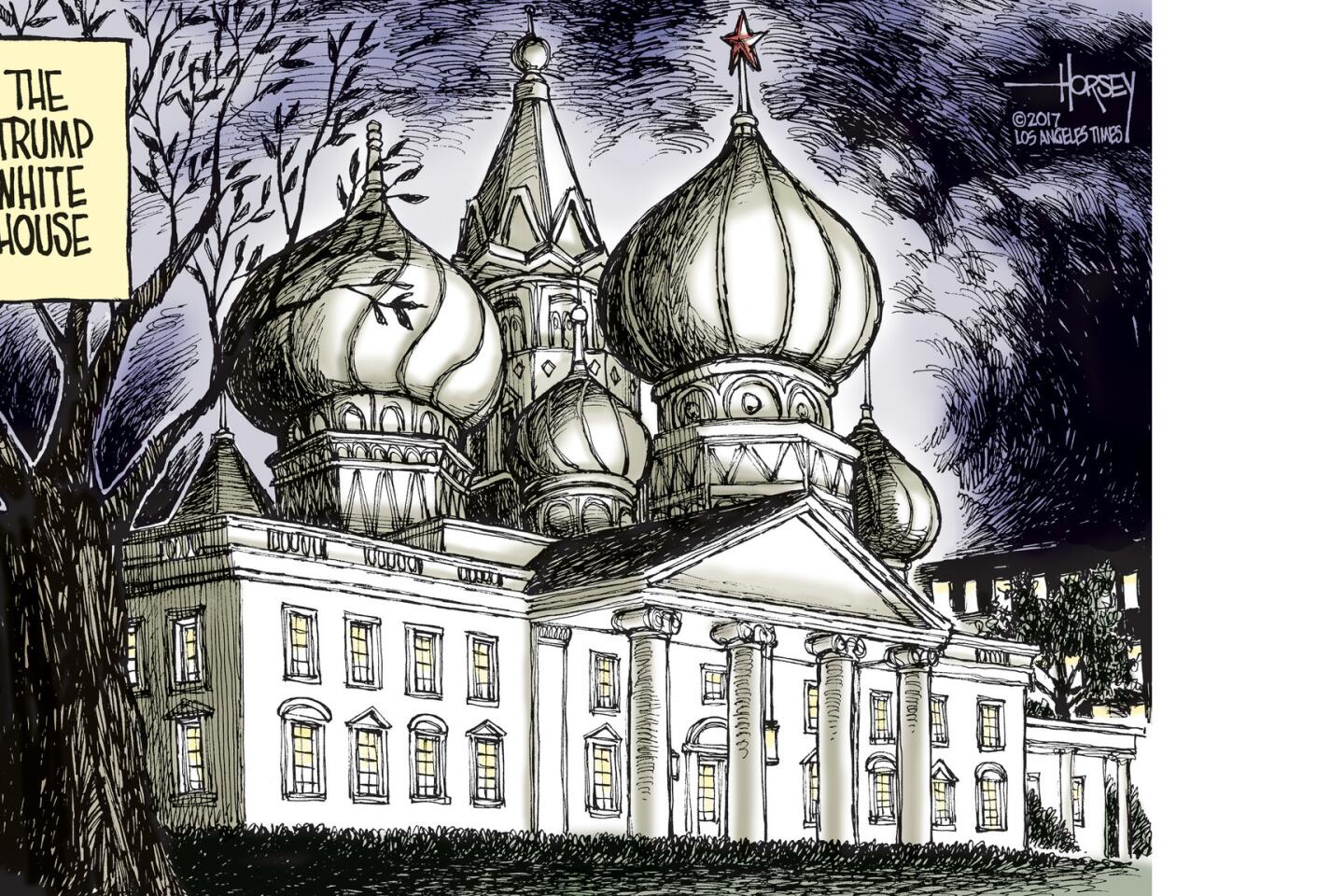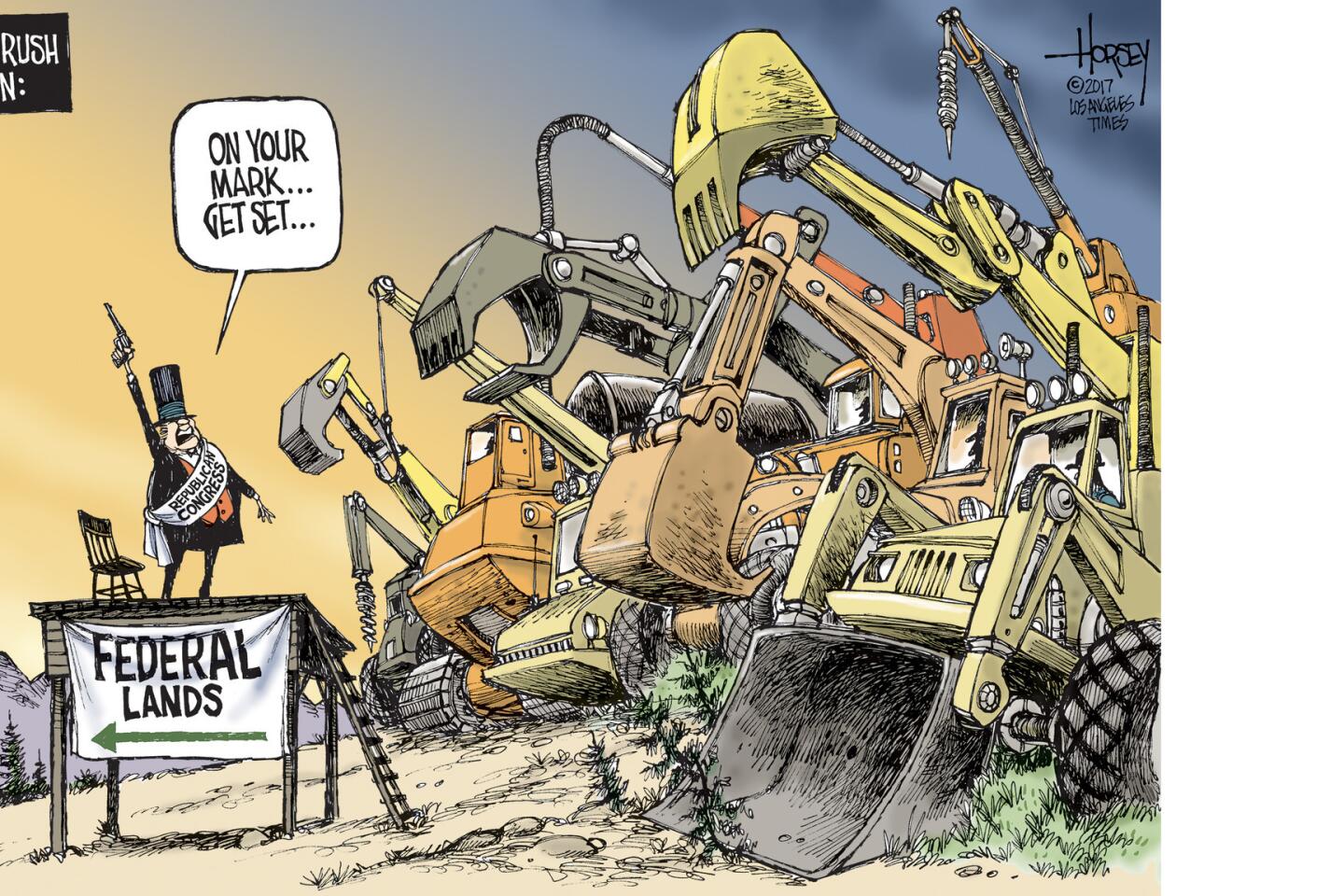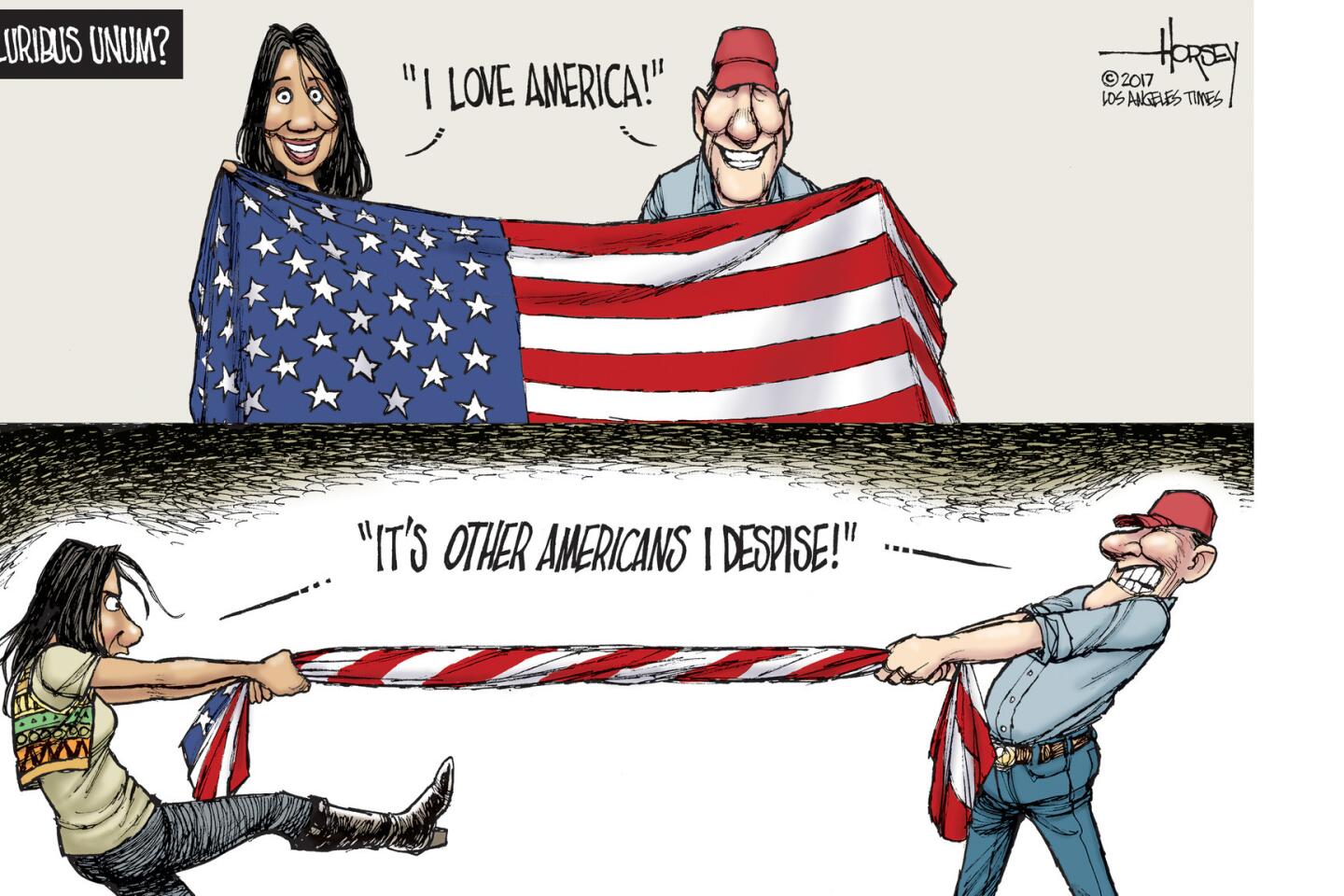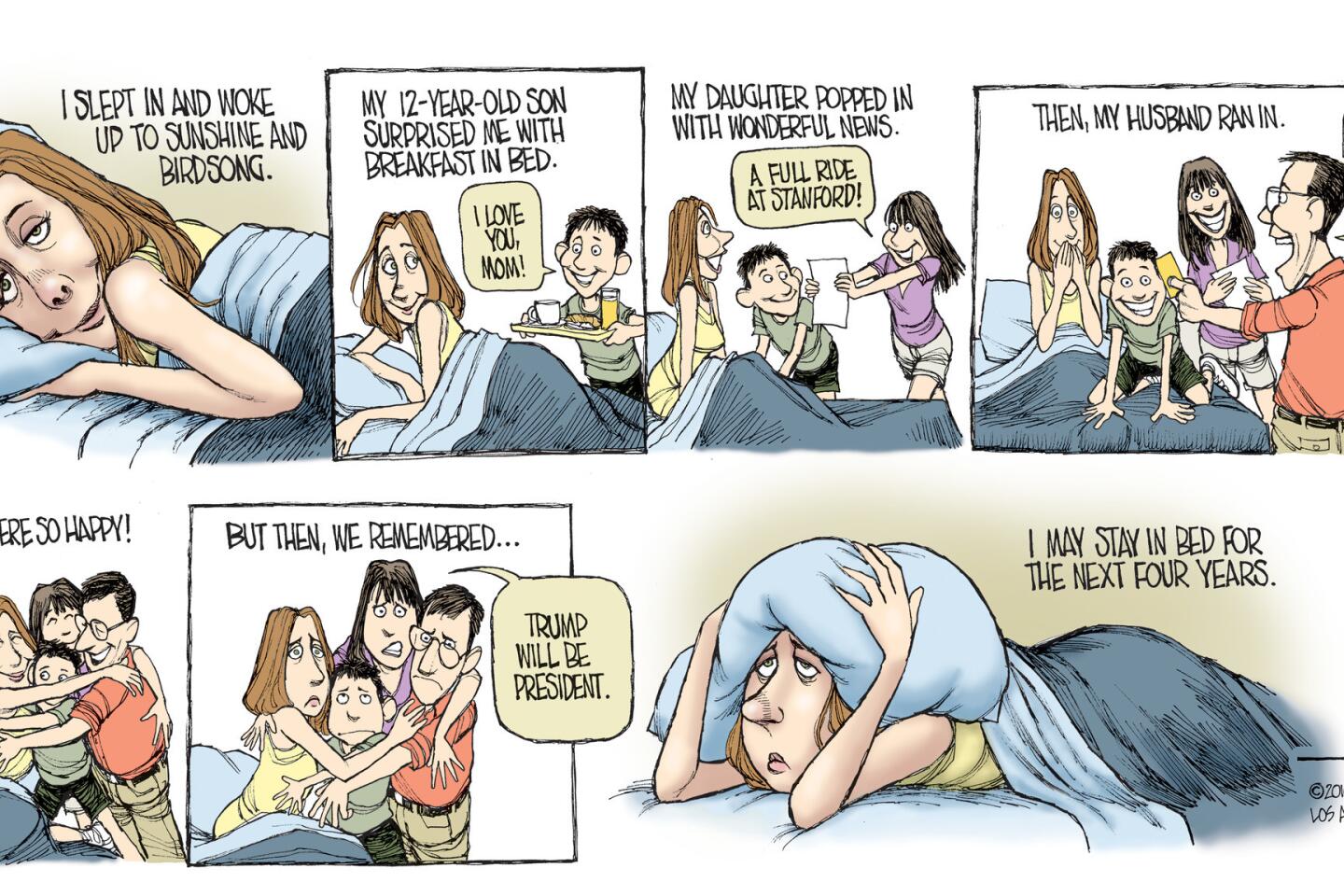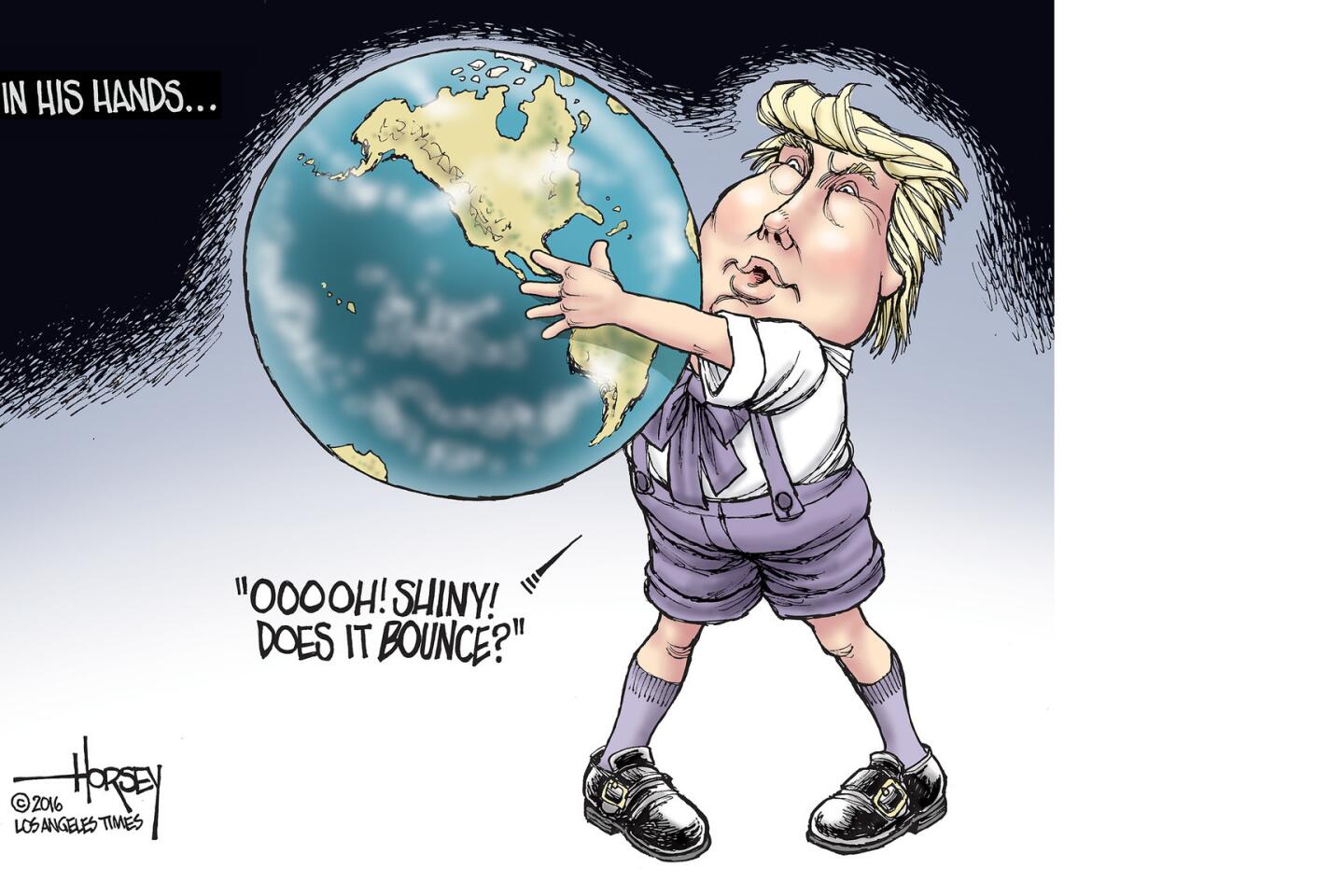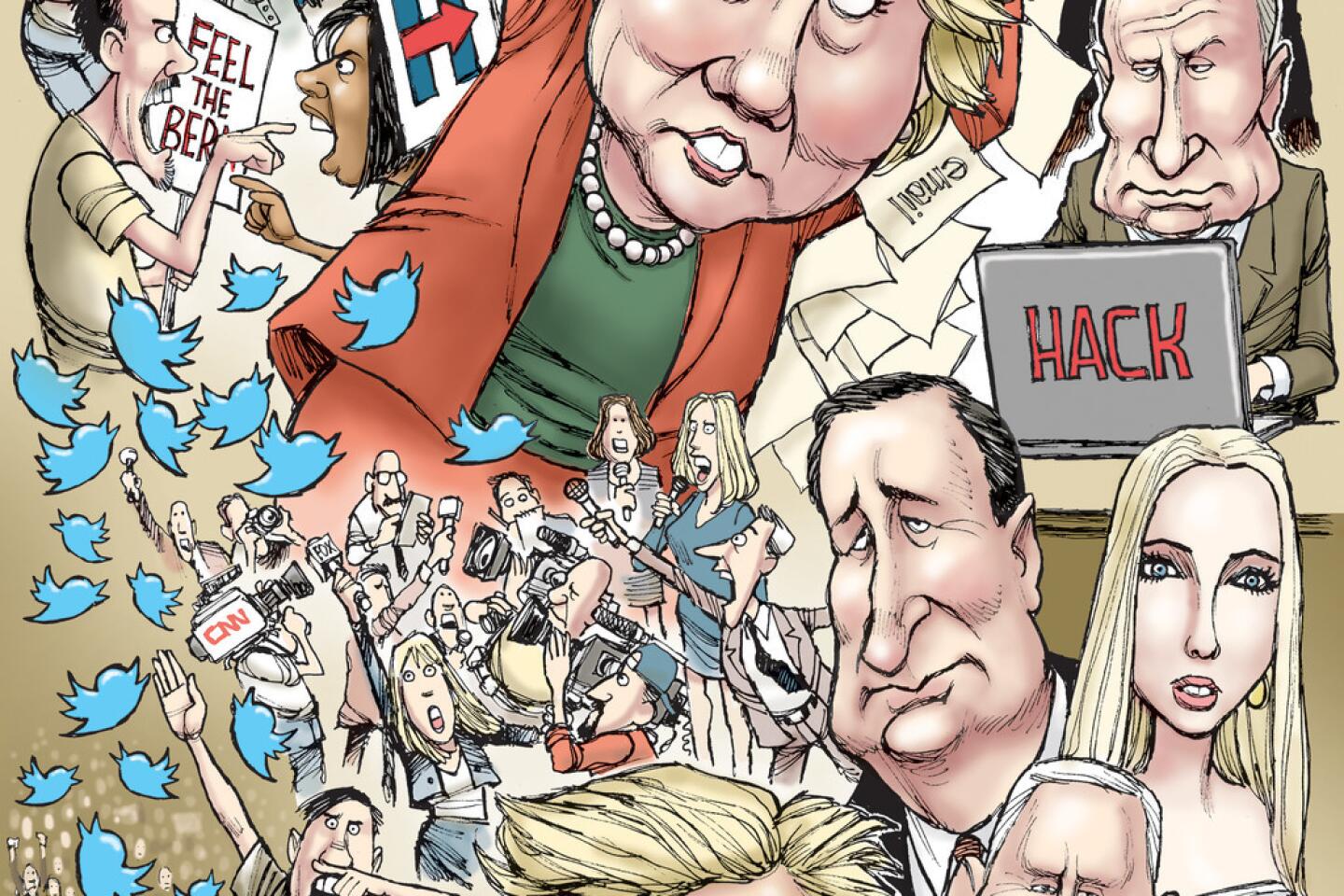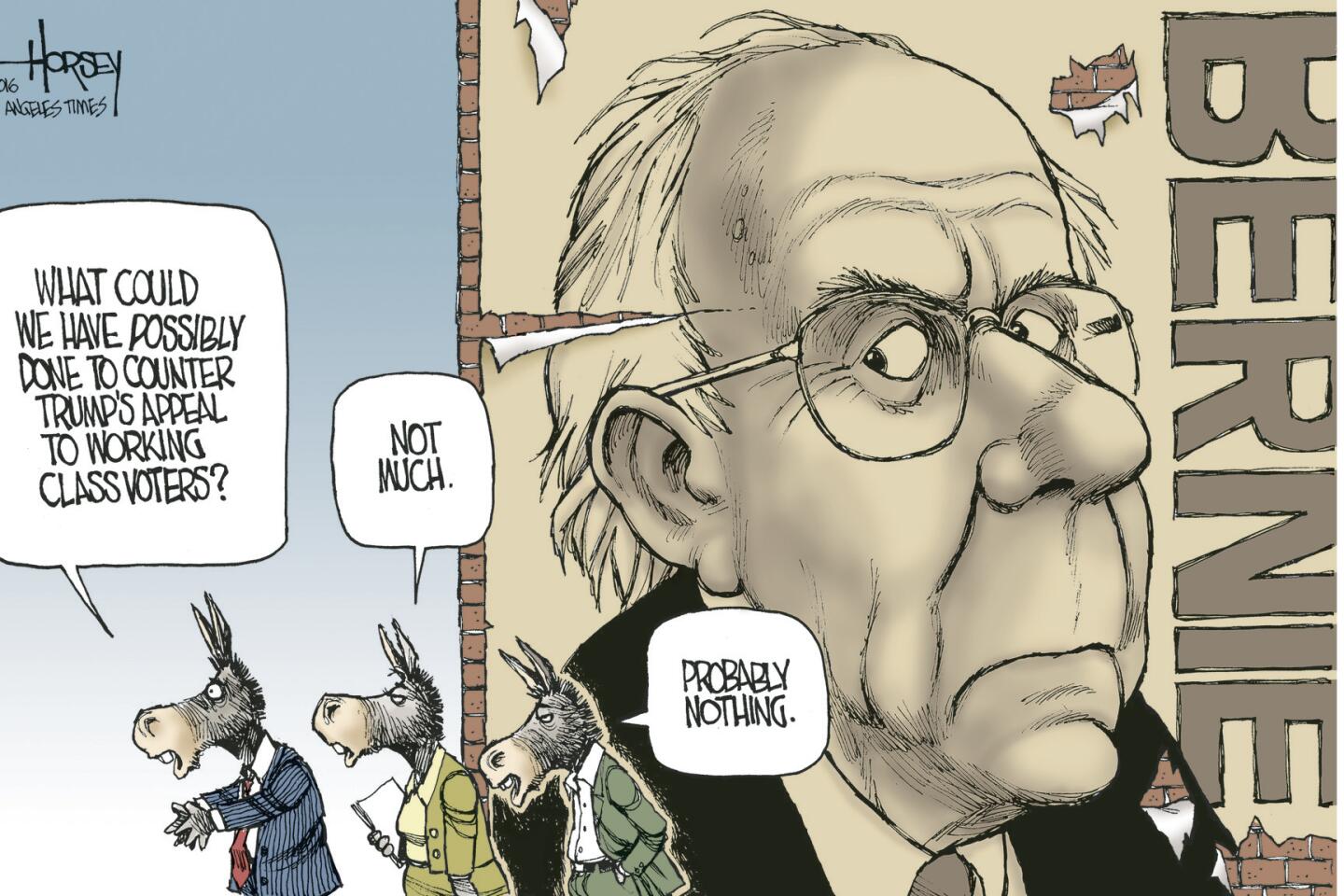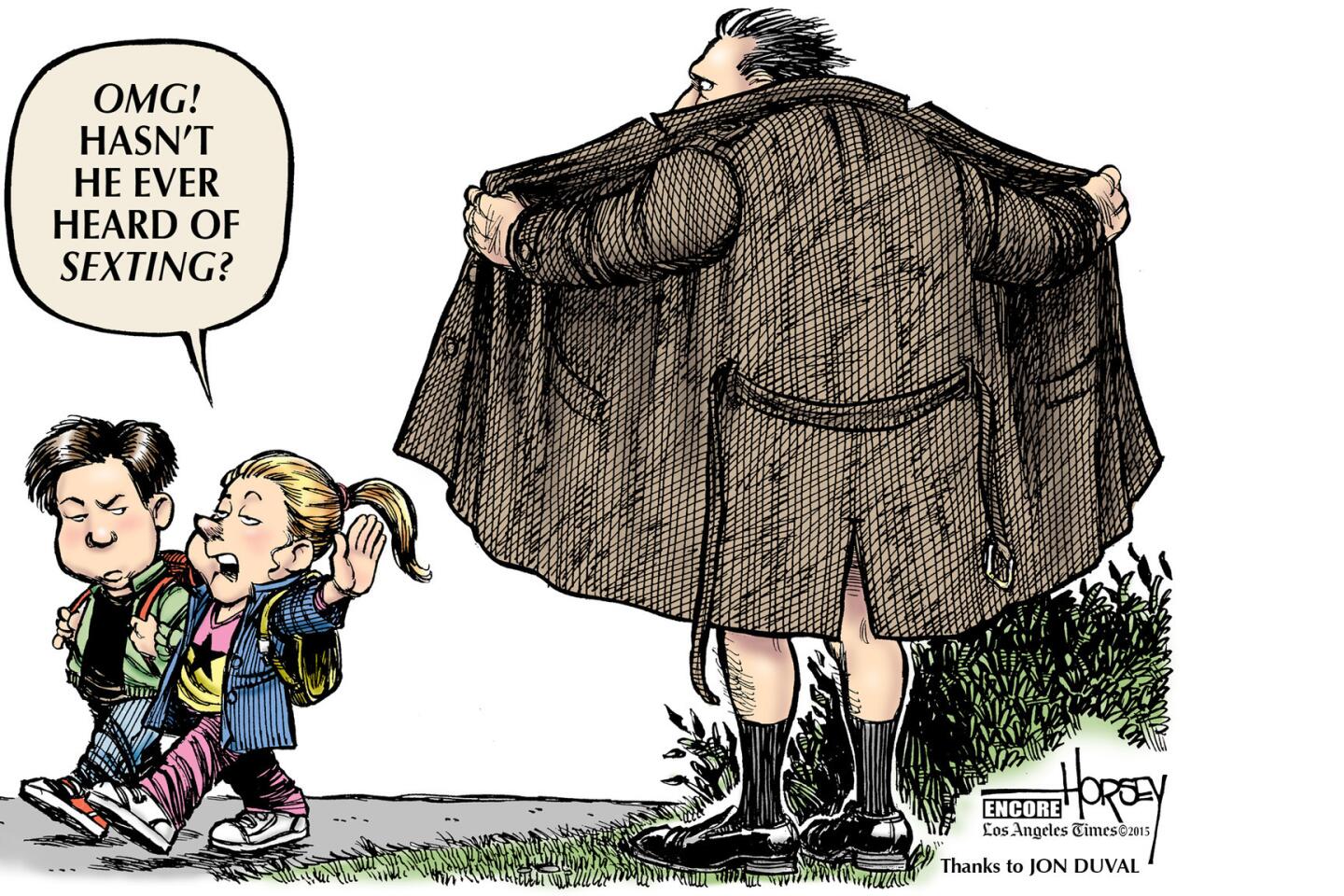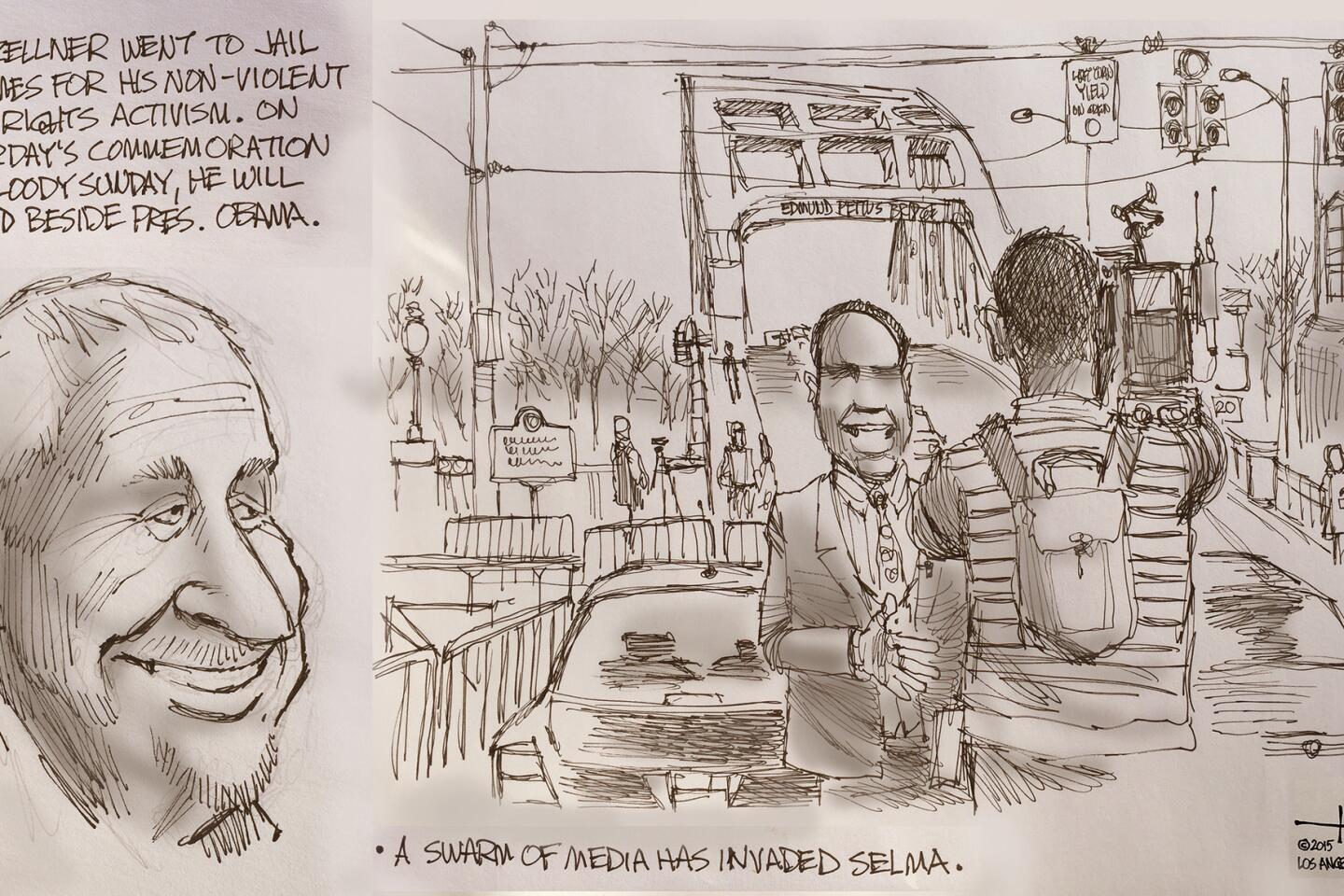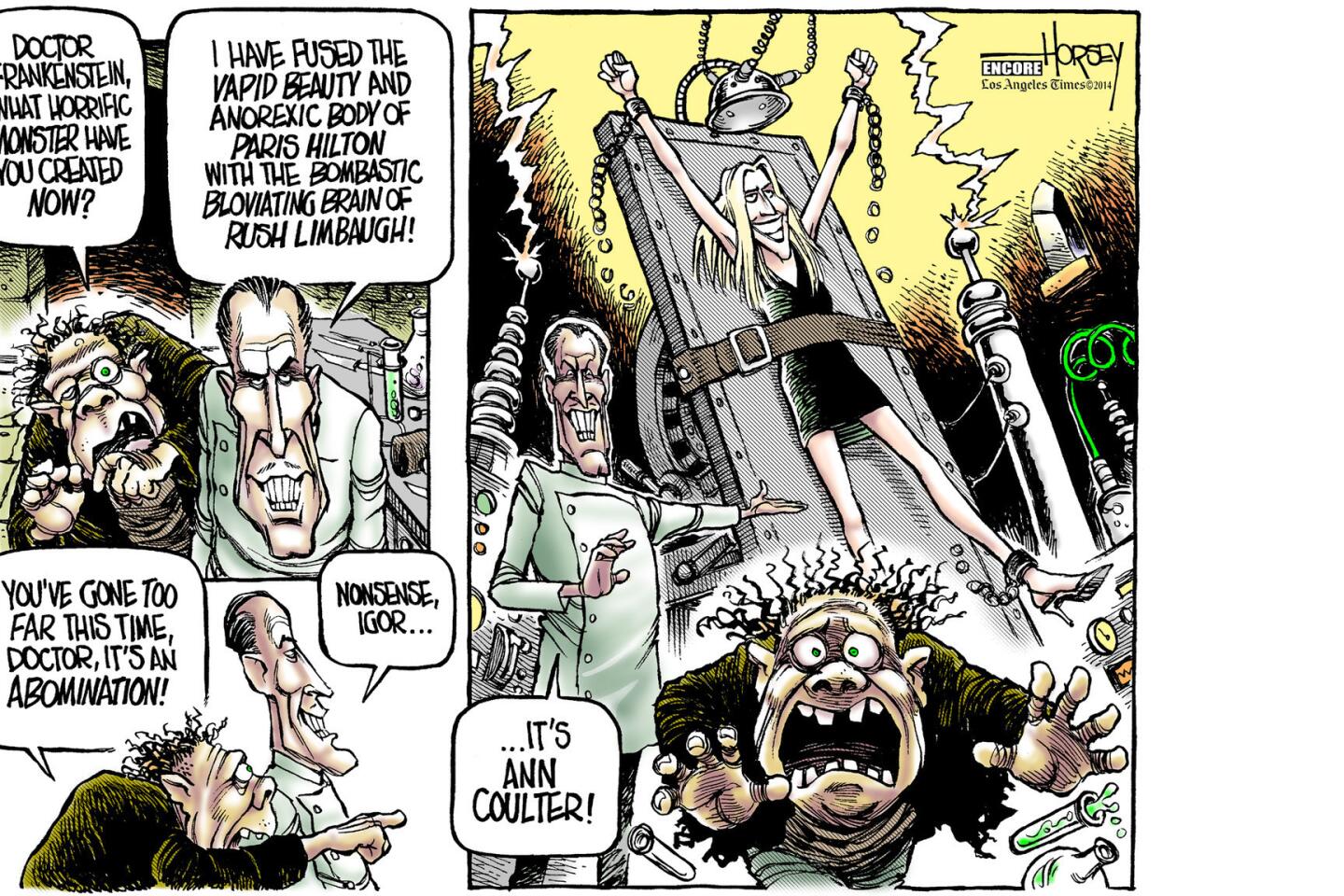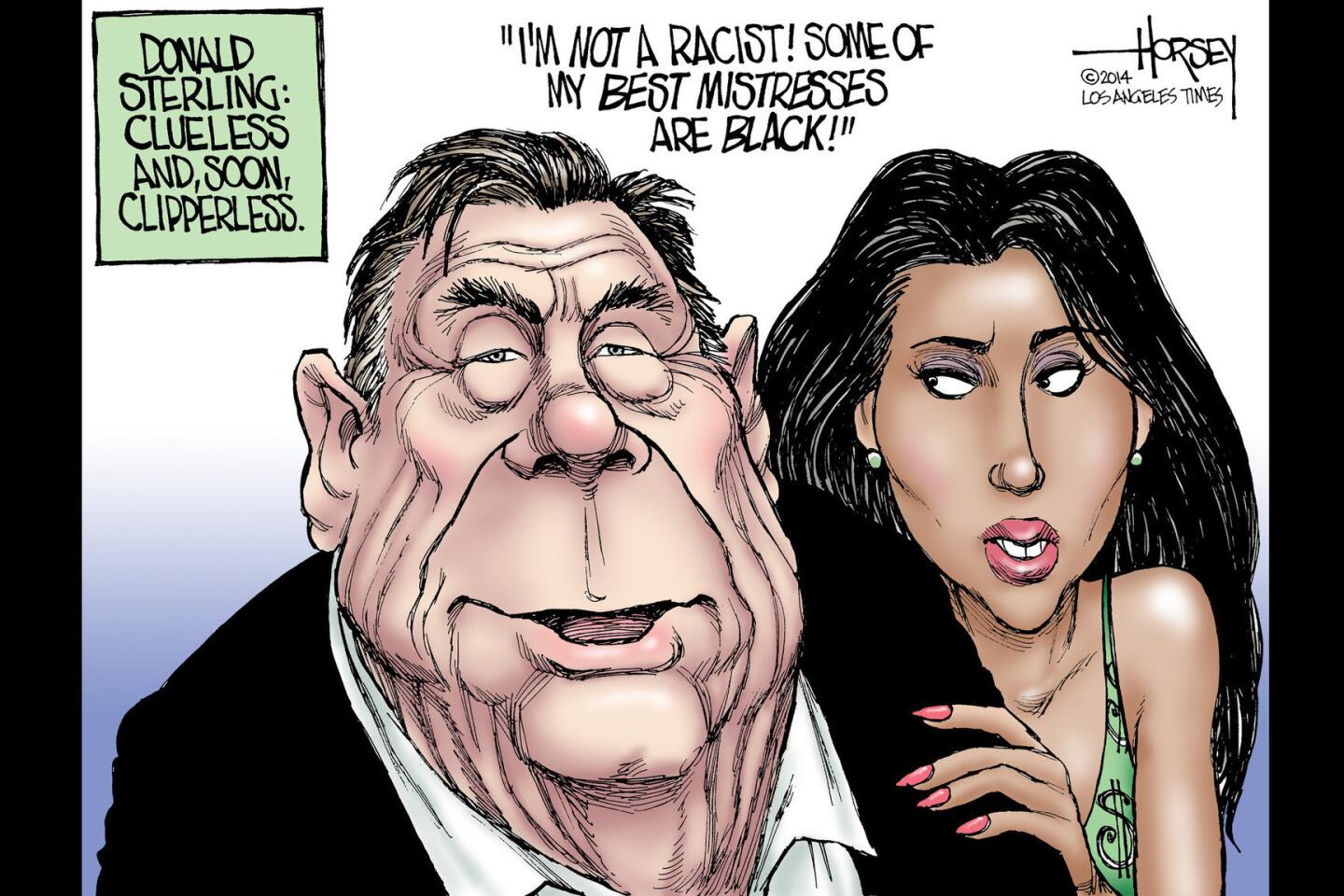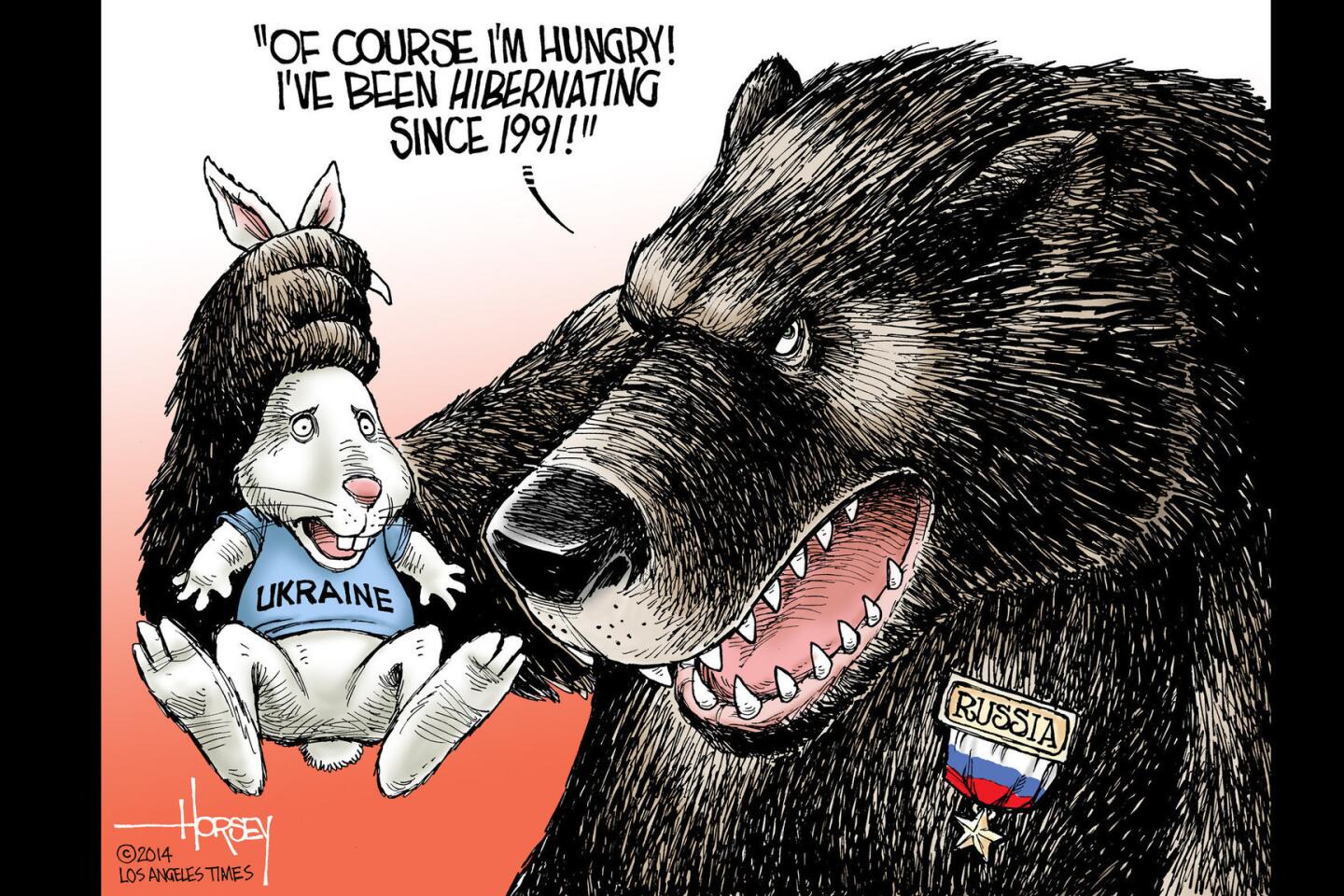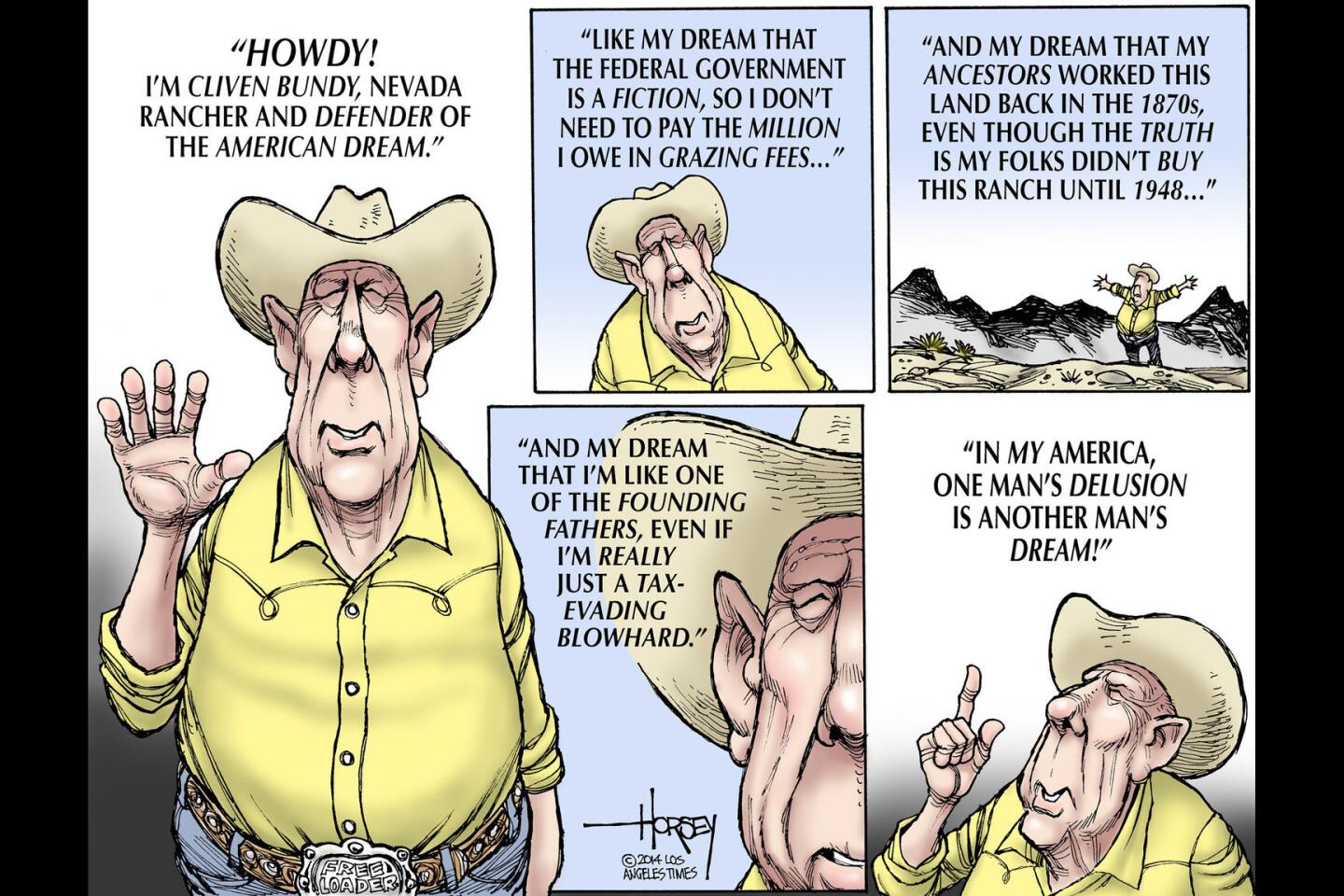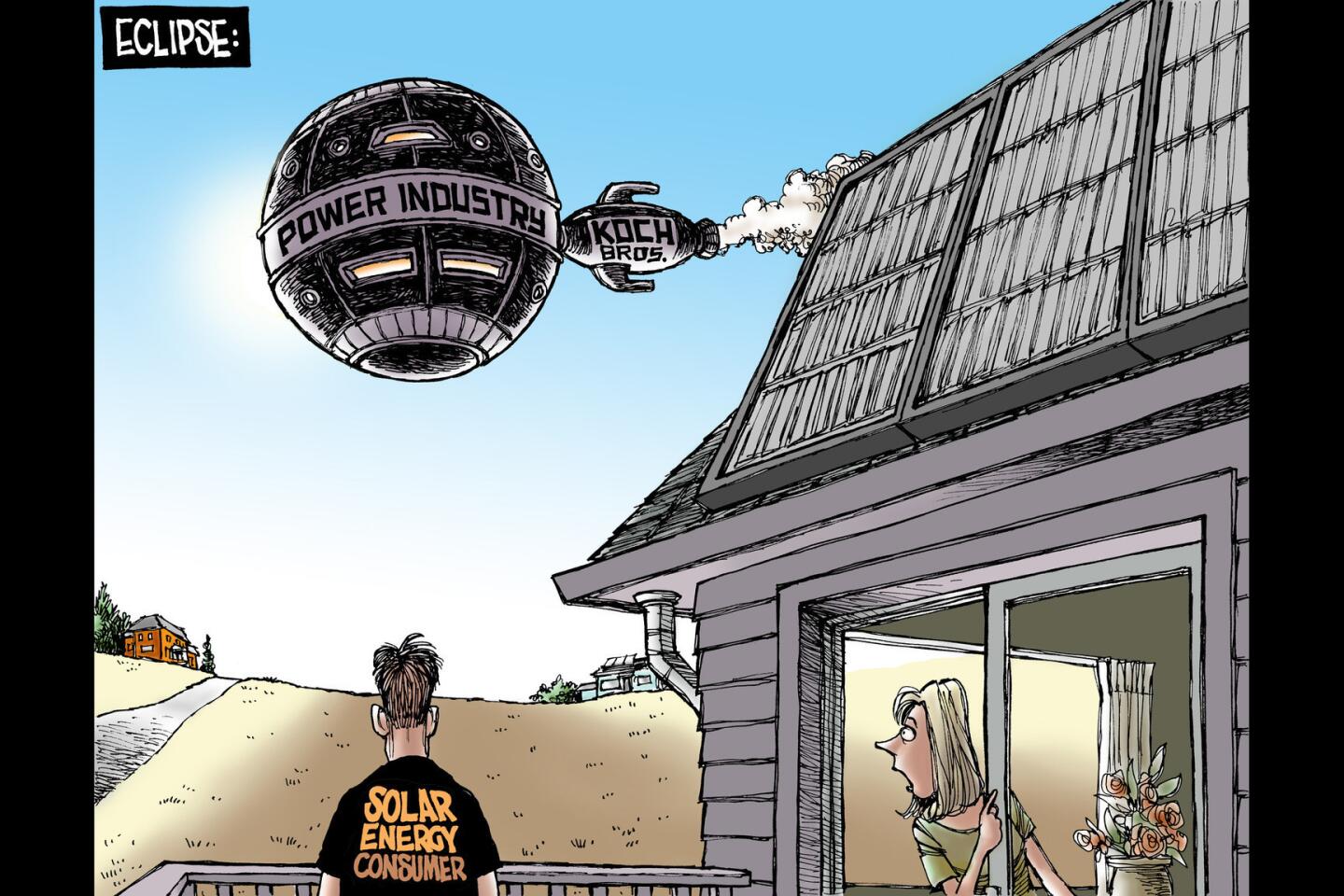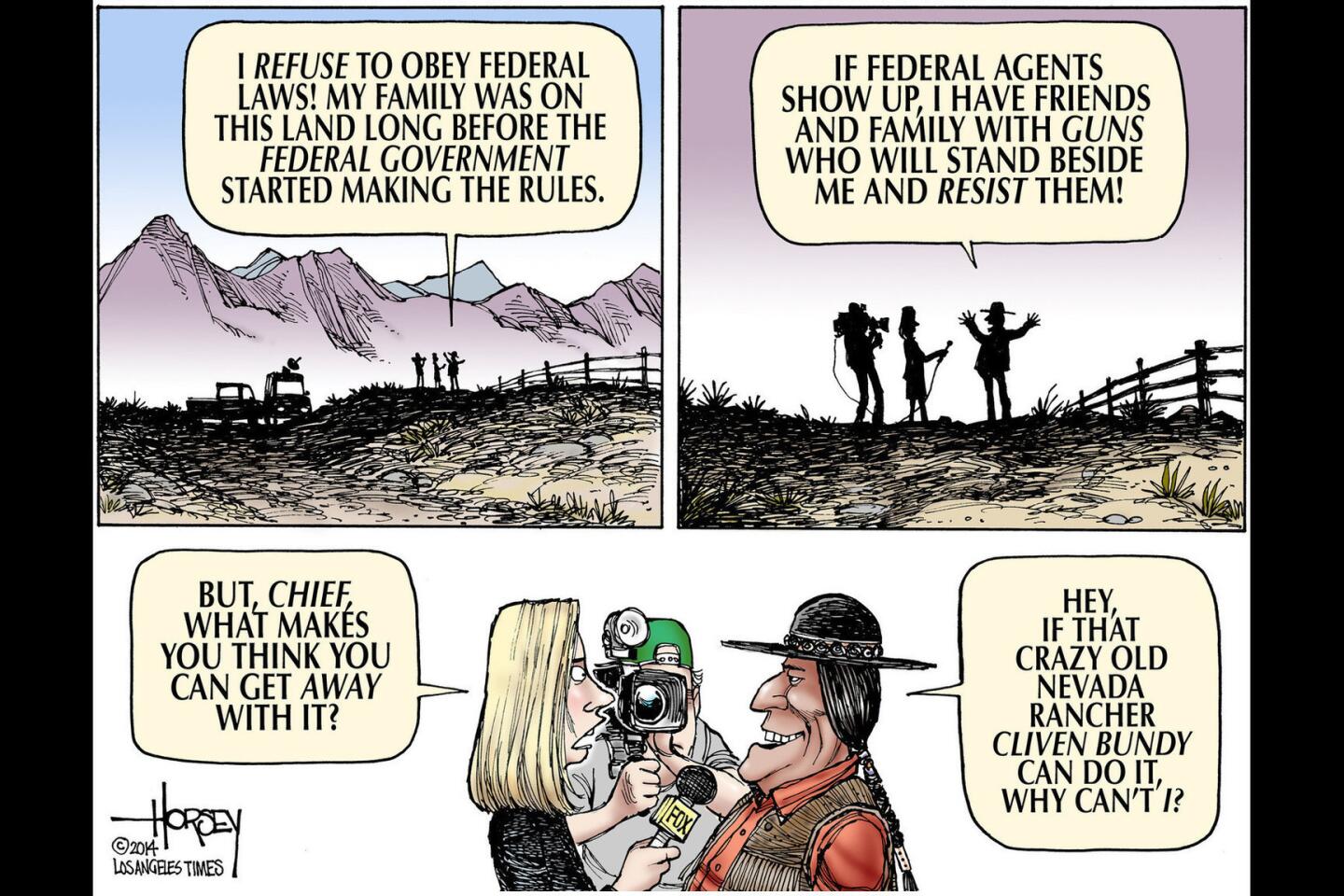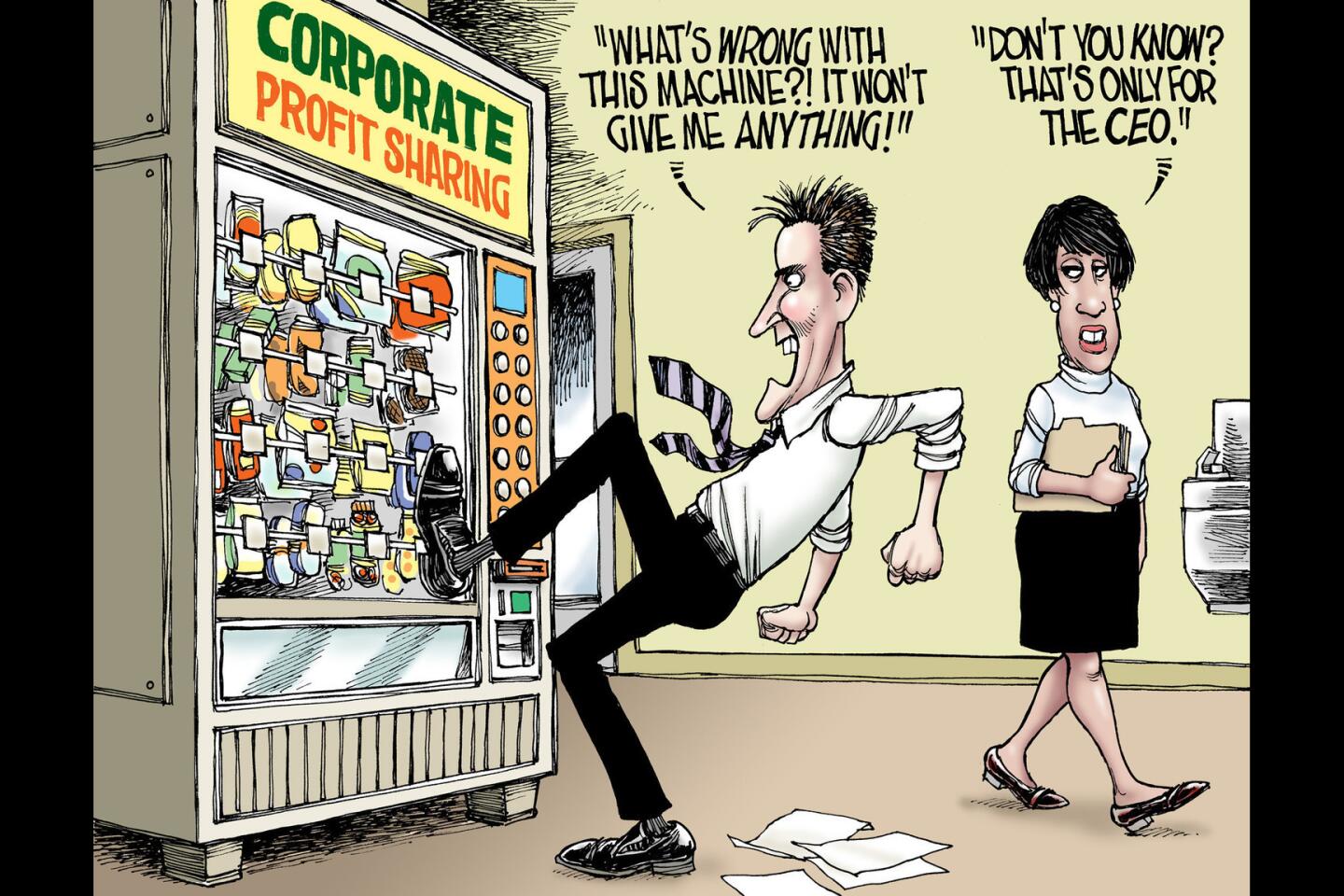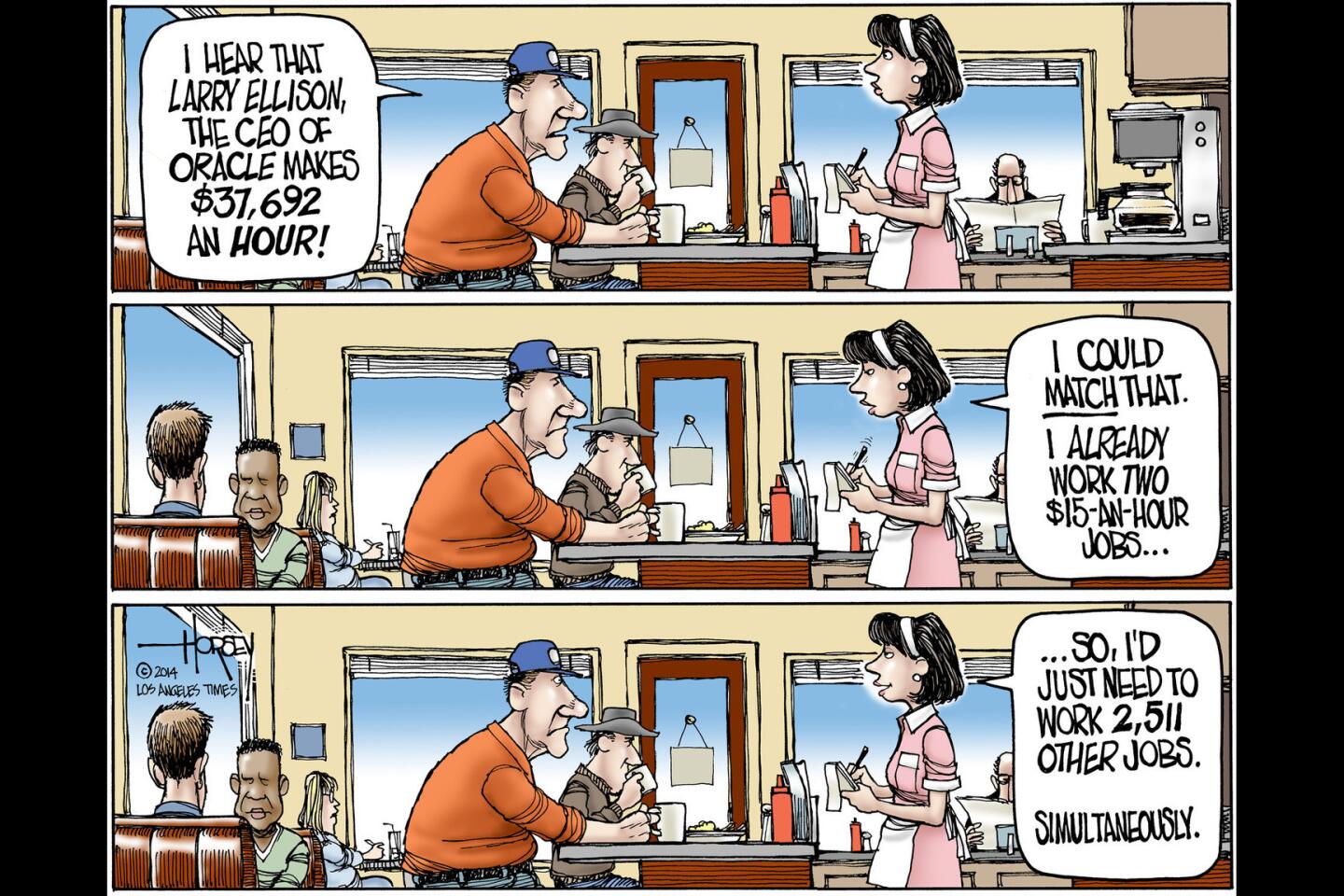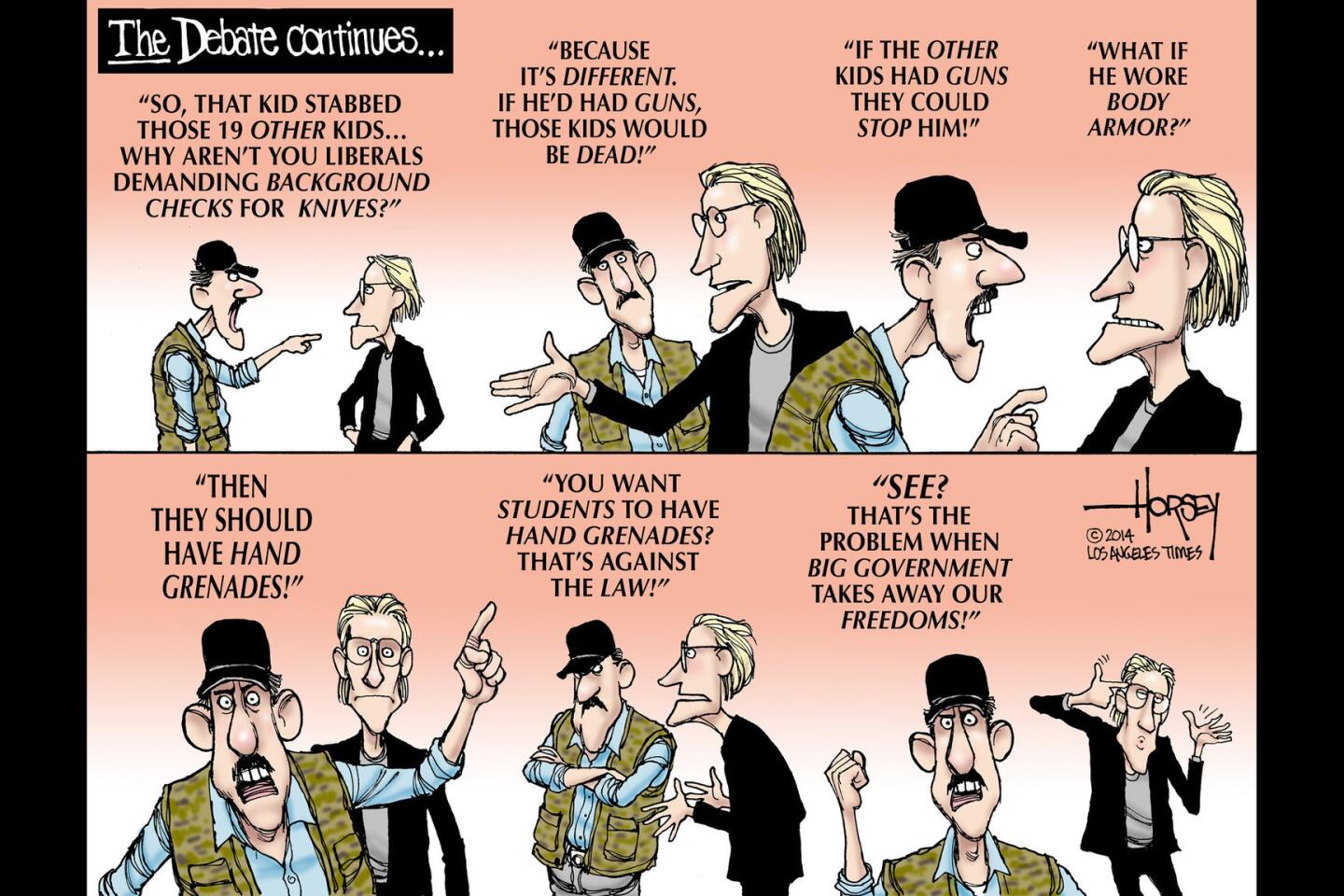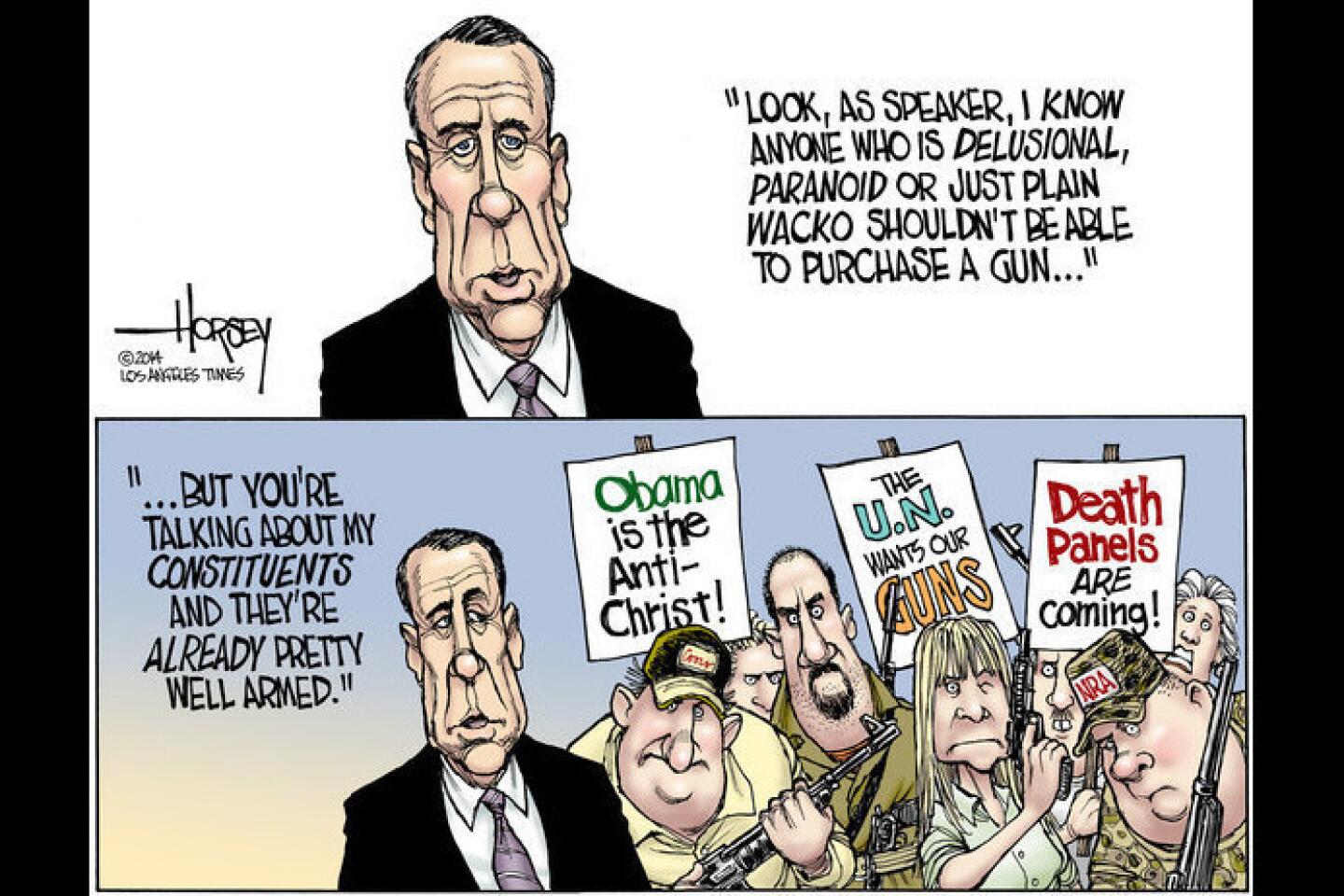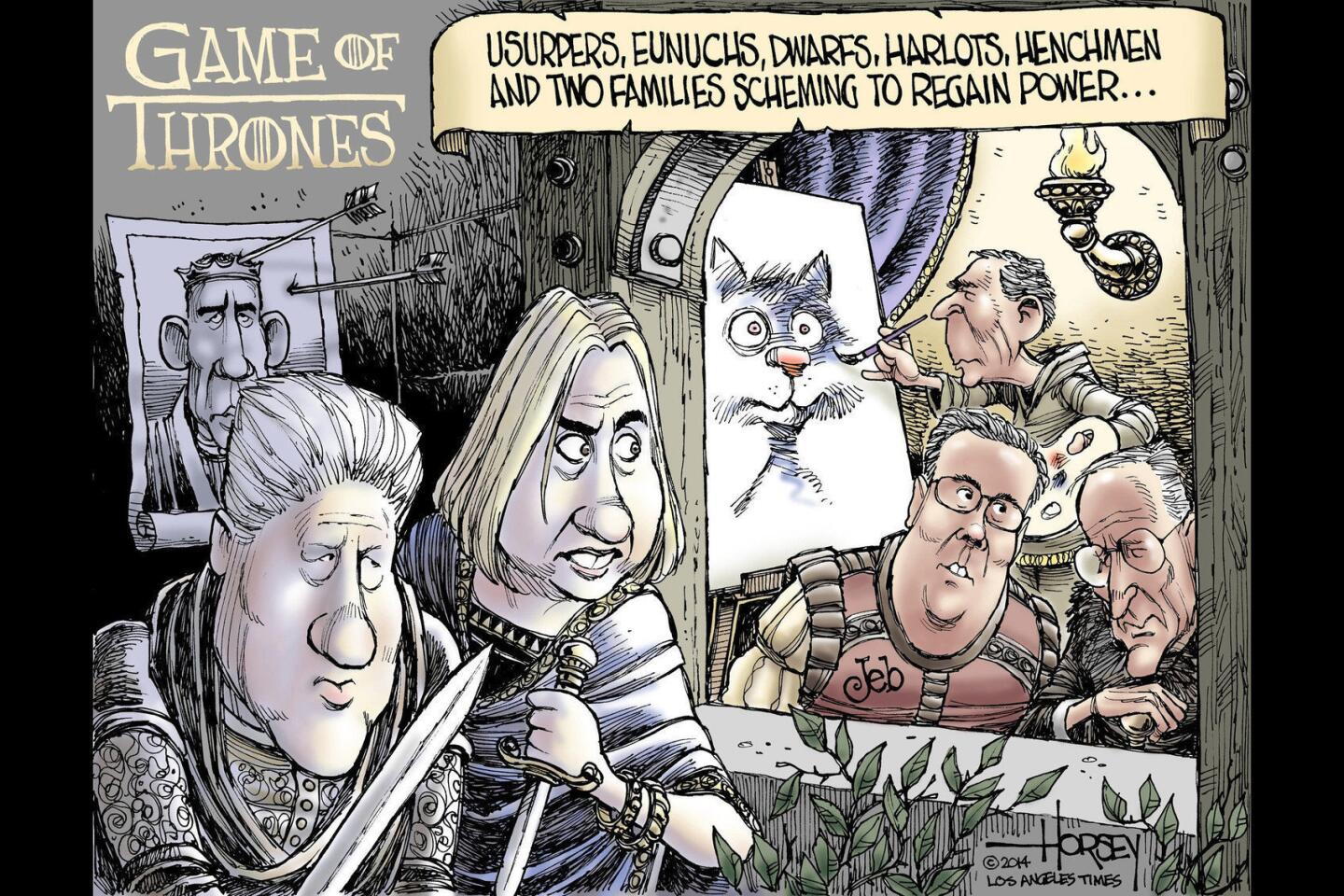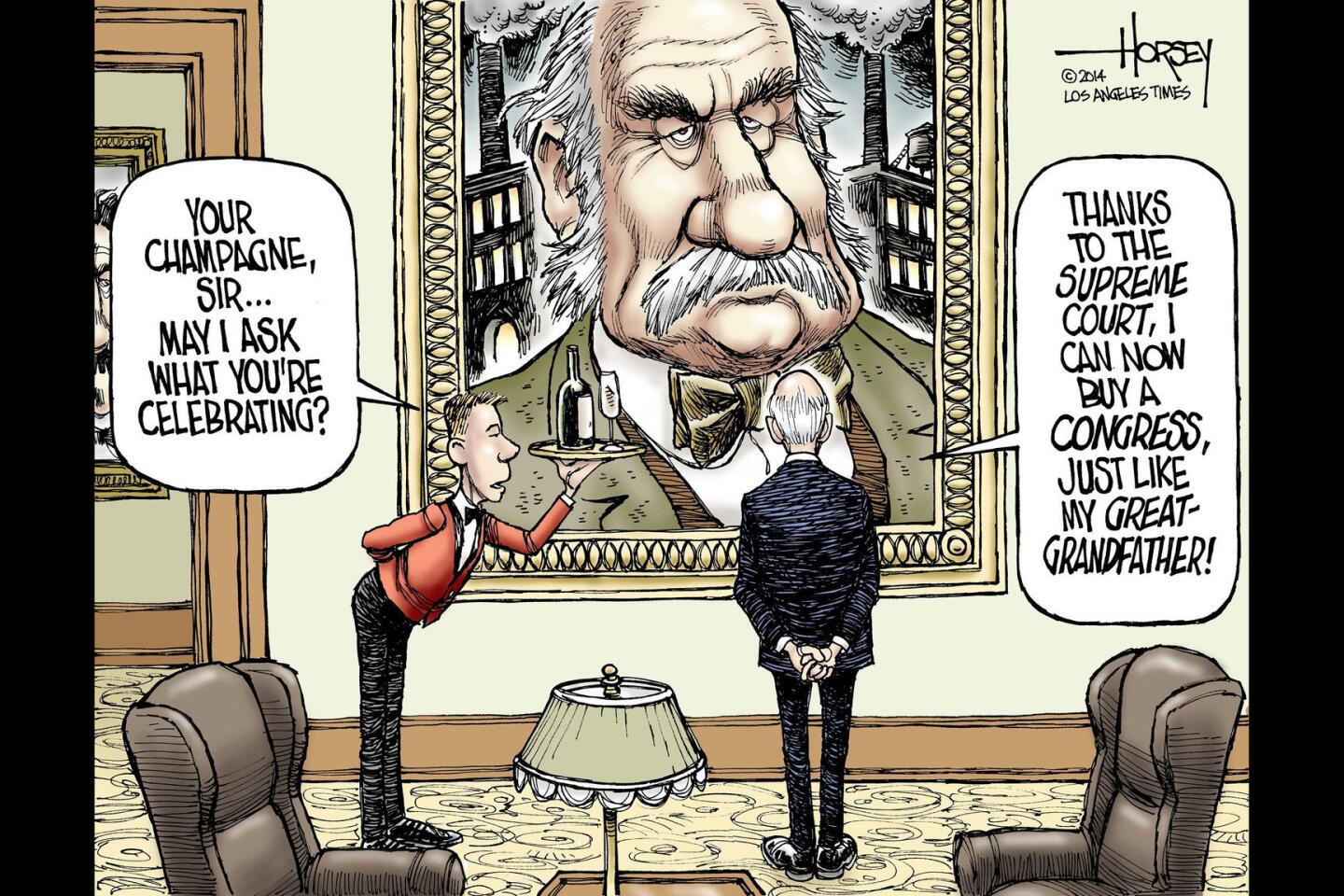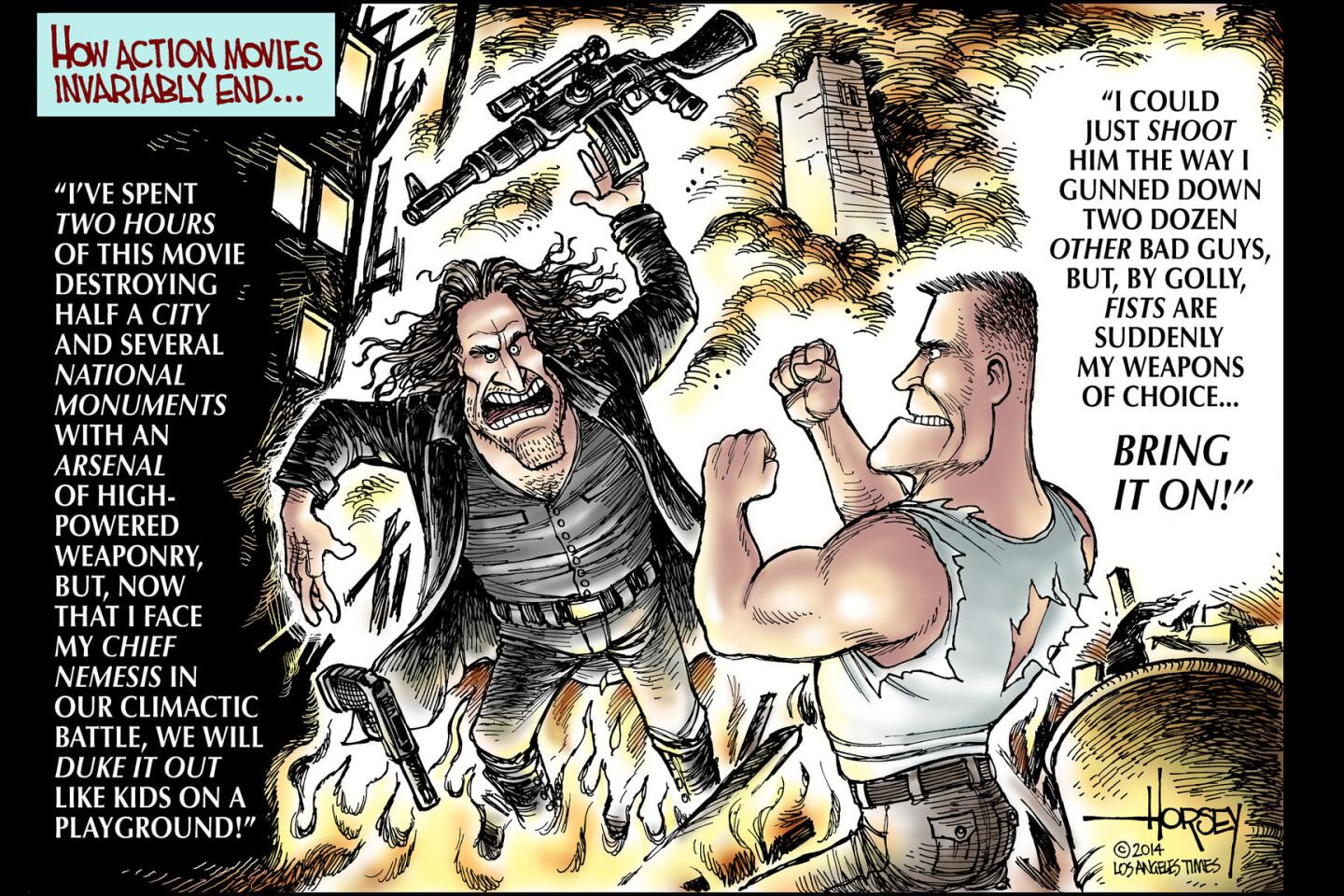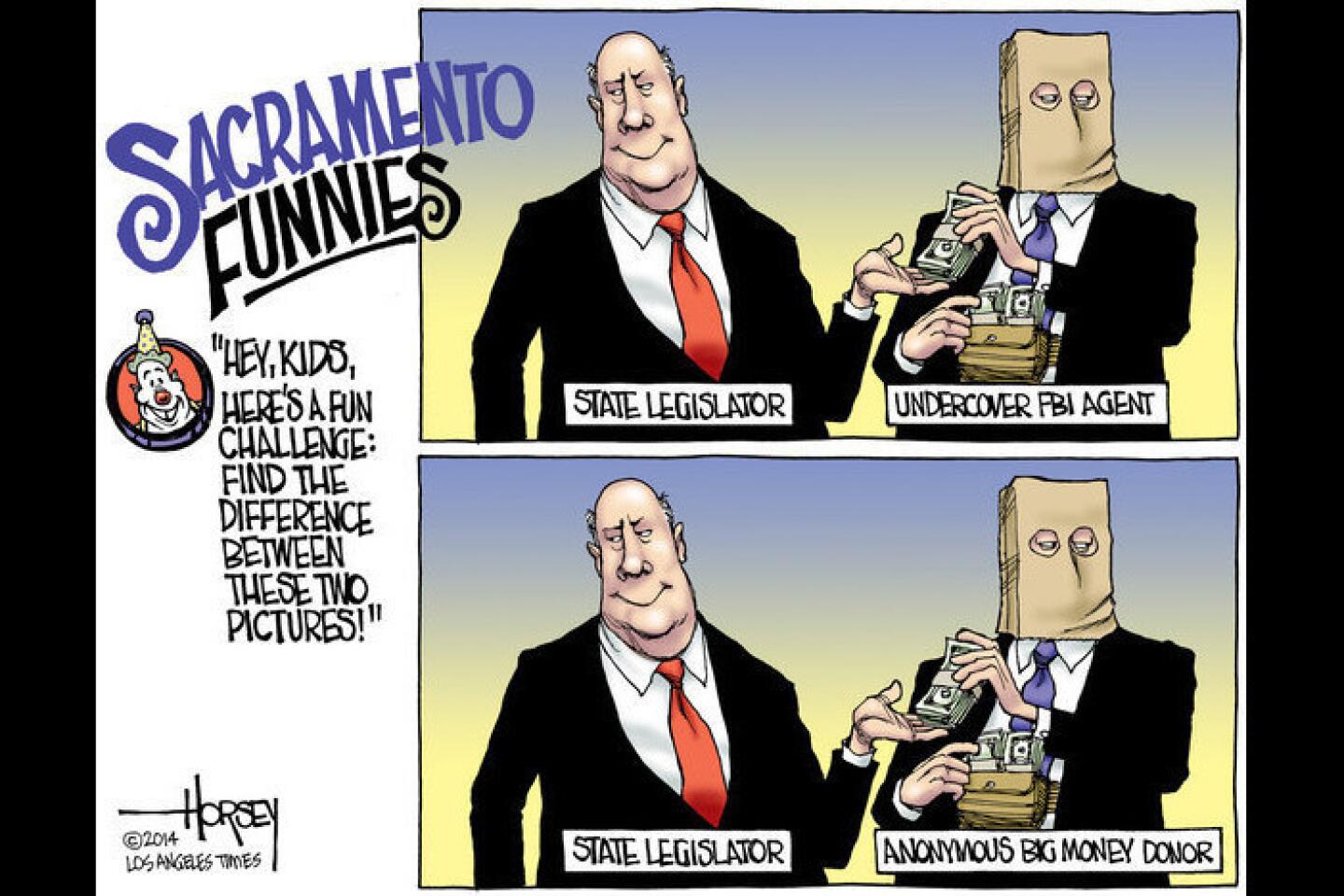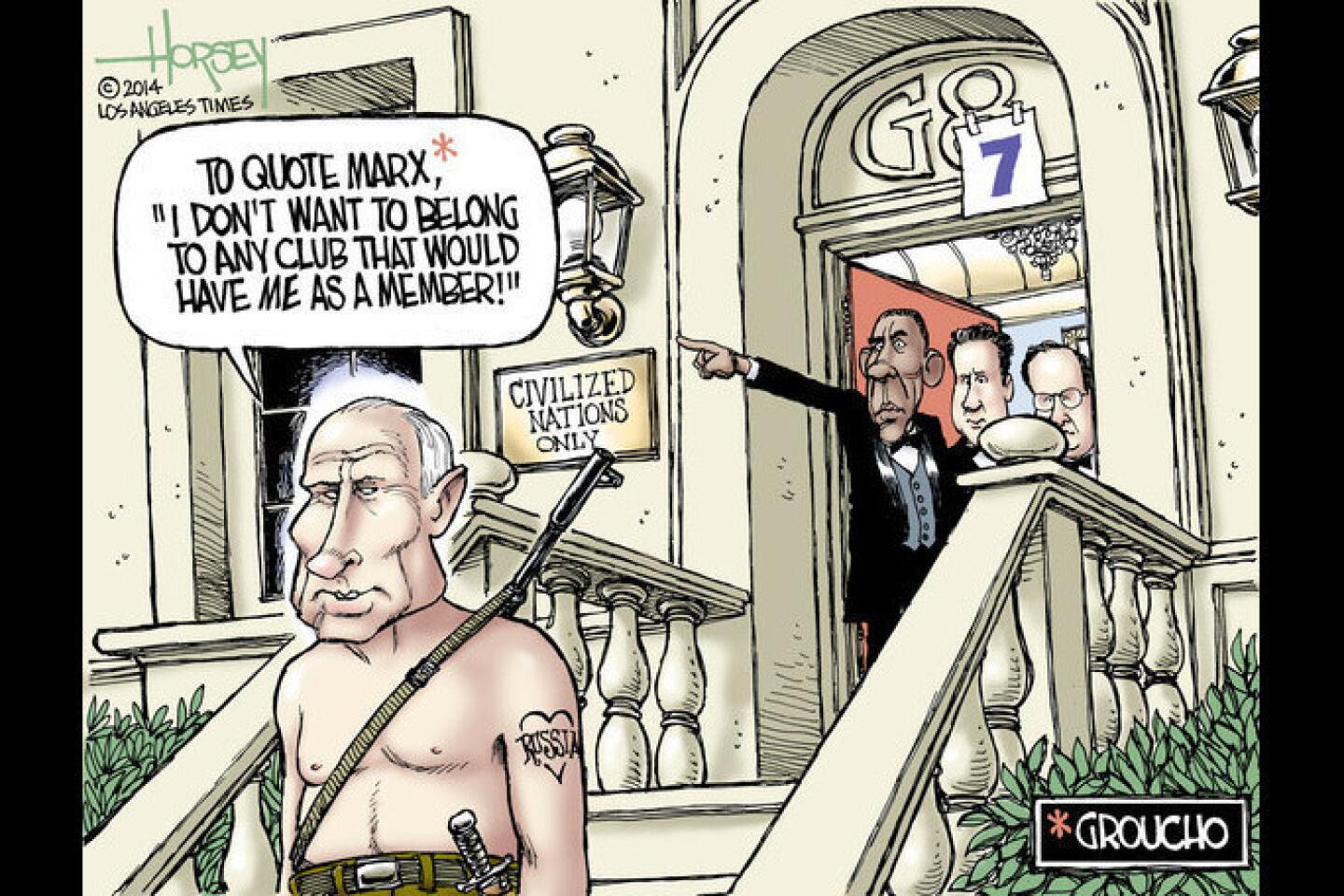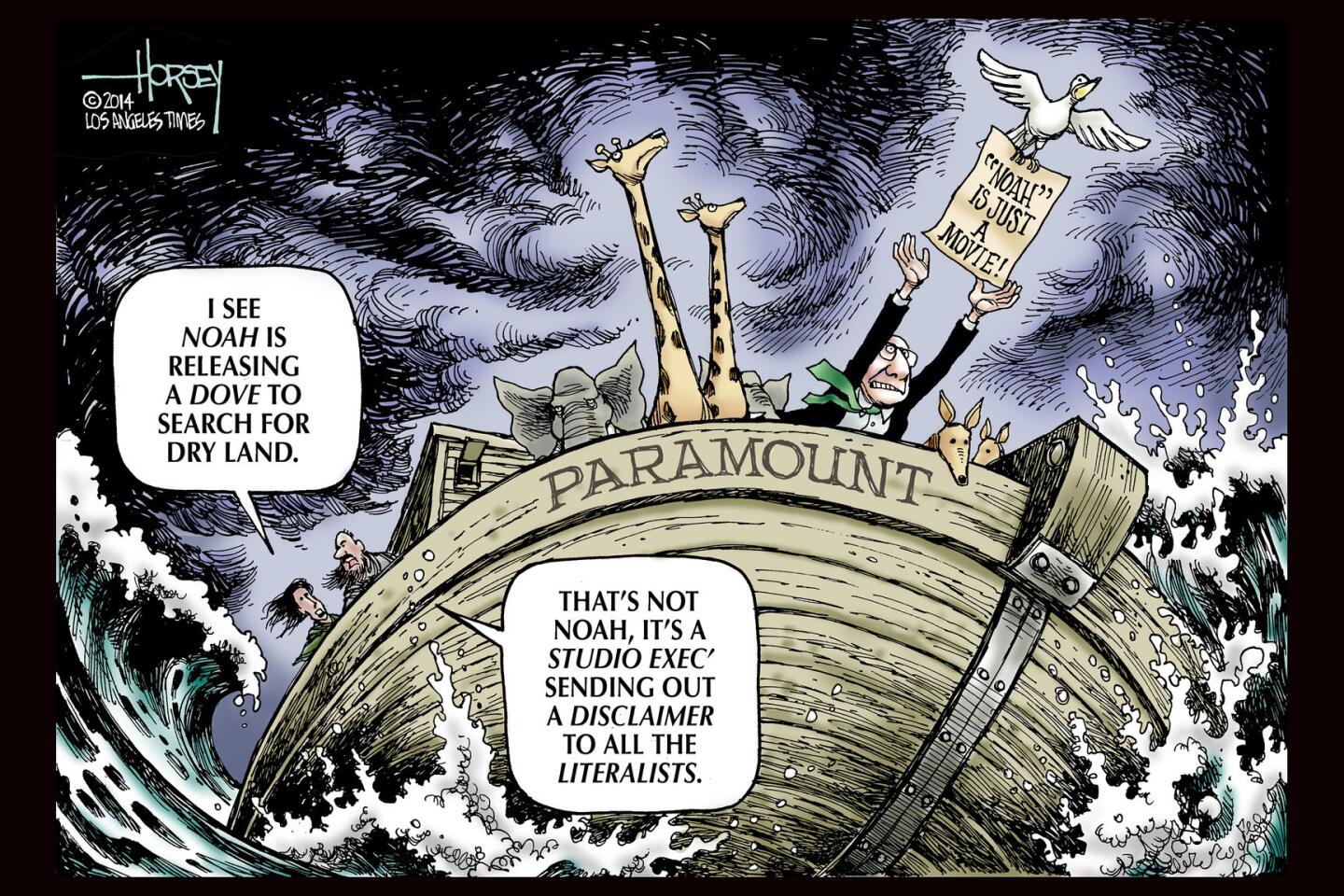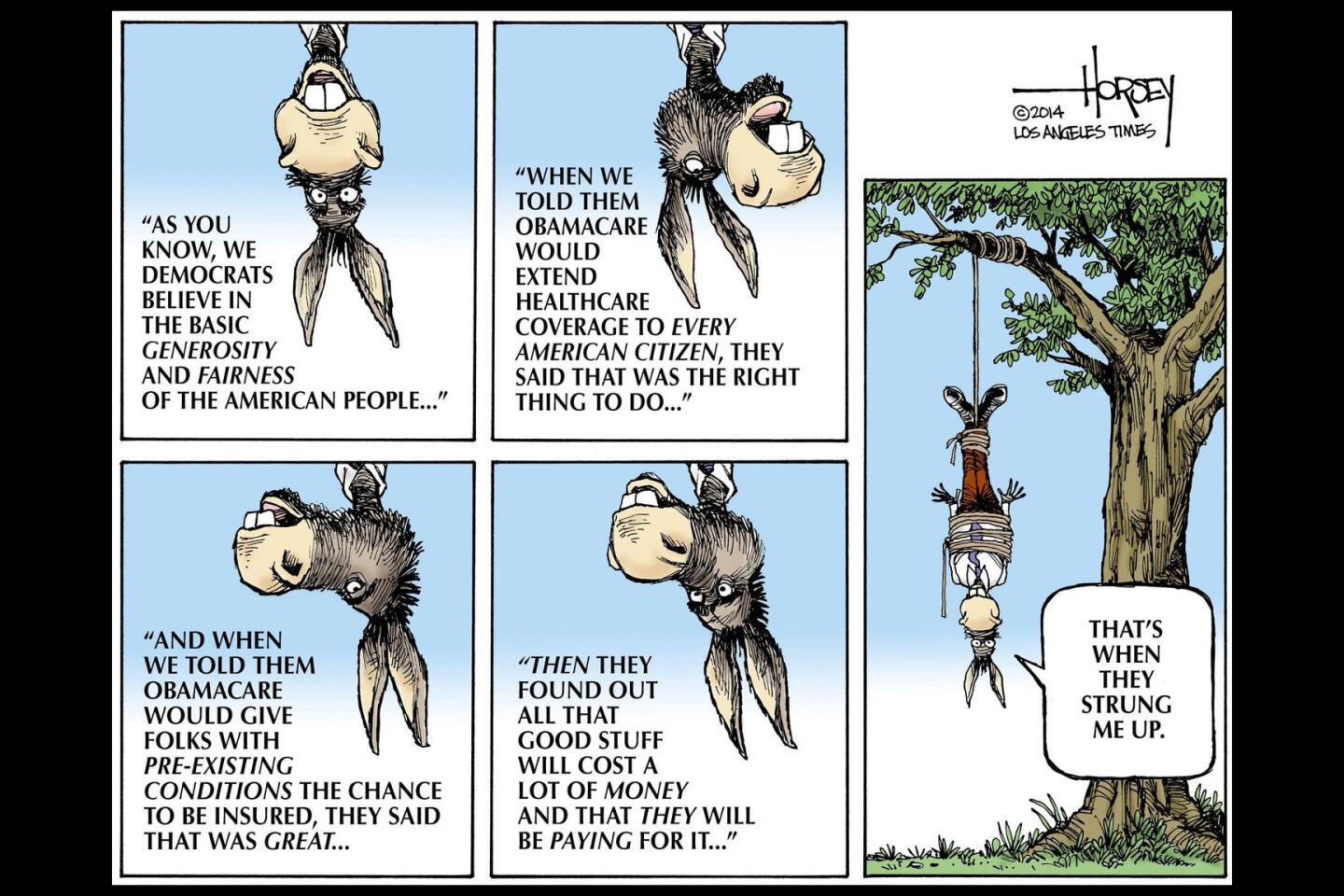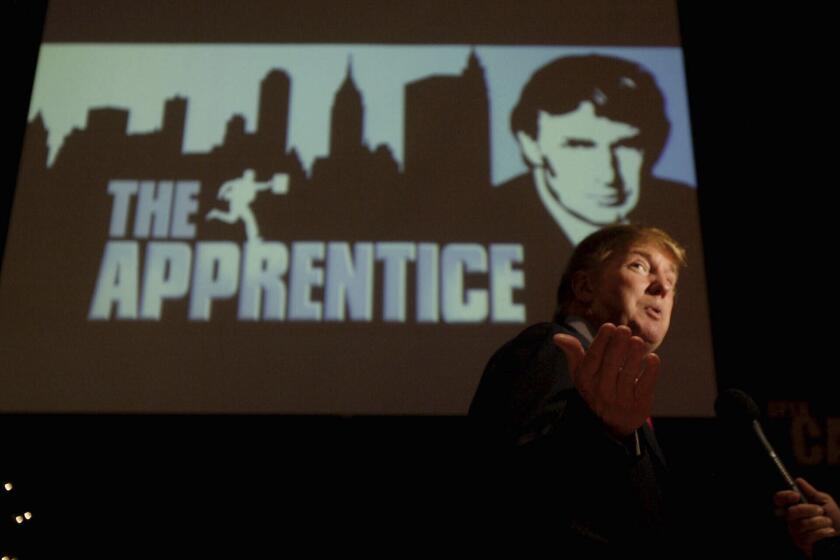Bernie Sanders is the leaderless Democrats’ anti-Trump evangelist
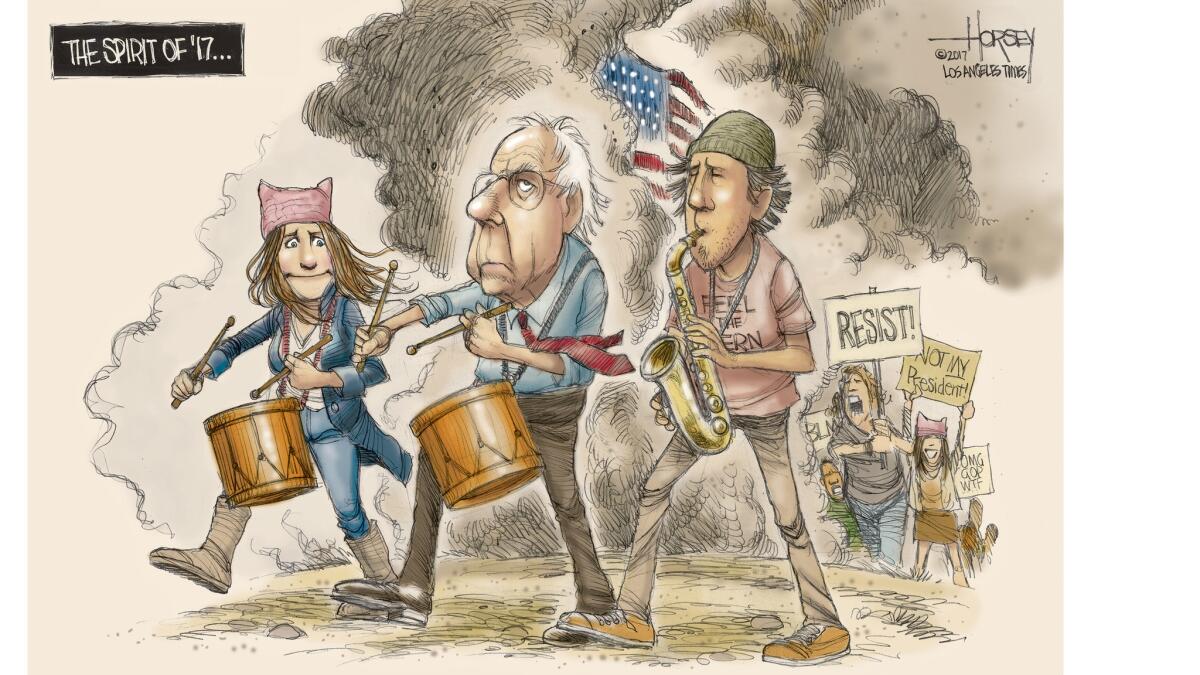
Imagine strolling into an evangelical church, packed to the rafters with true believers, just as the preacher is about to ask the sinners to step forward and be saved. And imagine walking up to the pulpit and asking that preacher if he’d like to sit down with you for a conversation about scriptural exegesis. Imagine how you would be received.
I almost felt like that on Sunday night when I walked onto the stage of an ornate old theater in downtown Los Angeles where I had been invited to interview Bernie Sanders, the Vermont senator whose run against Hillary Clinton was the unexpected phenomenon of the 2016 Democratic primaries.
Going in, I knew the audience would be animated. The event had sold out quickly, and tickets that started at $25 were being scalped for hundreds of dollars. These folks were enthusiastic about seeing their political champion again after the disappointment of the lost primary campaign, the subsequent electoral college defeat of Clinton and the inauguration of a new president who is assaulting every policy and principle they believe in. What I did not quite anticipate was Sanders.
Before I was brought in from the wings, the senator gave a 45-minute speech that was the latest iteration of the stem-winder he delivered at hundreds of town halls, fairgrounds and stadiums throughout the long presidential campaign. By the time I joined him at the two chairs at center stage, the rowdy crowd was revved up and Sanders was far from finished with them.
I kicked off my segment of the program by showing three of my cartoons on the big screen behind us. I thought that would be an entertaining way to ease into a discussion. Sanders glanced at them, but did not even fake a guffaw. When I tried to connect with him by mentioning I had been in Vermont a few years ago and witnessed the Strolling of the Heifers, a homespun parade of cows in Brattleboro, he did not smile or make a remark about the charms of his home state. When my meandering questions failed to get to the point quickly enough, he broke in with answers. And, two or three times, he got up from his chair to talk directly to the audience.
Now, I do not want to be misinterpreted. I did not find Sanders to be rude or unfriendly. Rather, he was a man with a mission, a very untypical politician who is deeply serious about his message and his cause. As I observed when I heard him speak at rallies in Pomona and Bakersfield before the California primary, he does not waste words making jokes or telling endearing personal stories. And on Sunday night in L.A., he was an evangelist with a responsive crowd. He was not obligated to fritter away that opportunity by indulging me.
The points Sanders touched on in his “sermon” were familiar from the campaign and from his campaign book, “Our Revolution” — the dangerous rise of an American oligarchy that buys control of the political system and reaps most of the rewards of economic growth; workers with stagnant wages for lengthening hours of labor; the hollowing out of the middle class; the need for relief from obscene levels of college student debt; the still unattained promise of affordable healthcare for everyone; the opportunities to create jobs by rebuilding the country’s infrastructure and building a new energy system divorced from fossil fuels; the imperative to deal with climate change before it is too late.
The difference now is that Donald Trump is in the White House and Republicans command Congress. So, Sanders is no longer looking for votes, he is preaching resistance. He is on the road urging his followers to reject despair, exhaustion, fear or apathy and get more deeply involved in politics by running for office, joining campaigns, chasing down elected officials at town hall meetings, taking to the streets in protest and “thinking outside the box” — resistance on every level.
On Sunday night, Sanders reminded the audience that “this is not the first moment in American history that has been bleak.” He recalled the dire situation of African Americans in the South in the 1950 and ’60s, the quandary of women a century ago who were denied the right to an education, the plight of workers in earlier eras who had no rights because they had no unions, and the shadowed lives of gay people who had to keep their true identities in the closet. In all those situations, people could have given up, he said, but they did not.
“I left the campaign more overwhelmed and impressed by the beauty in our country,” Sanders said, bringing the evening to a close. “And don’t let Trump and his friends on television discourage you. There is incredible beauty in this country. There are millions of people of every race and every background who want to work together to makes this the country that you and I know it can become. And right now our job is to be as smart as we can be, to be as effective as we can be, to organize … educate, get involved in the process in a way you never have before, because this is not just for you. This is for my four kids and your children. It is for my seven grandchildren and your grandchildren that you have now or to come. This is for the future of the planet. That’s what we’re fighting for.”
As I watched Sanders speak — amused by my superfluous role and impressed by his passion and stamina — it struck me that, if the man were 10 years younger, everyone in the media would be talking about him as the top choice for Democrats in 2020. Instead, the Democratic Party lacks a national leader. Clinton is silent in defeat. Barack Obama is playing golf. Joe Biden’s chance has passed. There is no single person who is the obvious savior of the party.
But Democrats have an evangelist in Bernie Sanders, and his campaign seems far from done.
Follow me at @davidhorsey on Twitter
More to Read
A cure for the common opinion
Get thought-provoking perspectives with our weekly newsletter.
You may occasionally receive promotional content from the Los Angeles Times.
